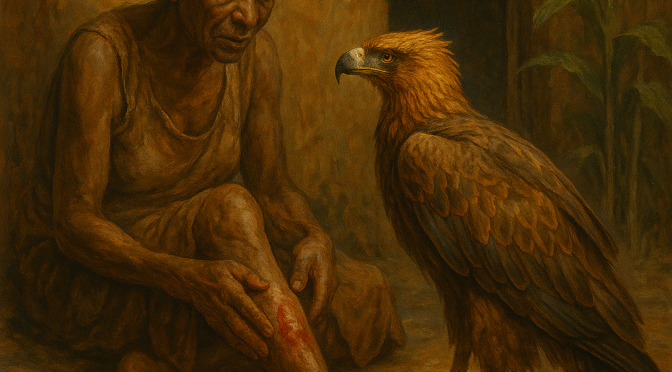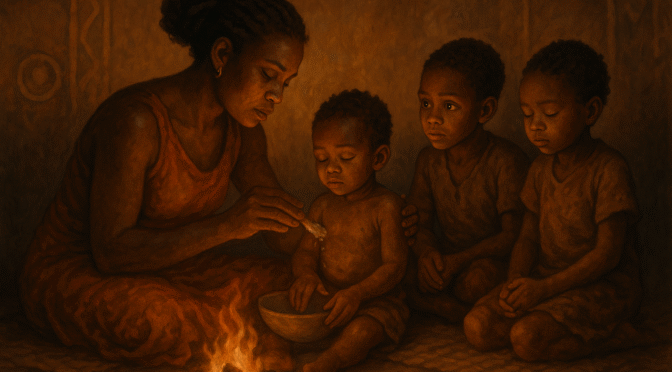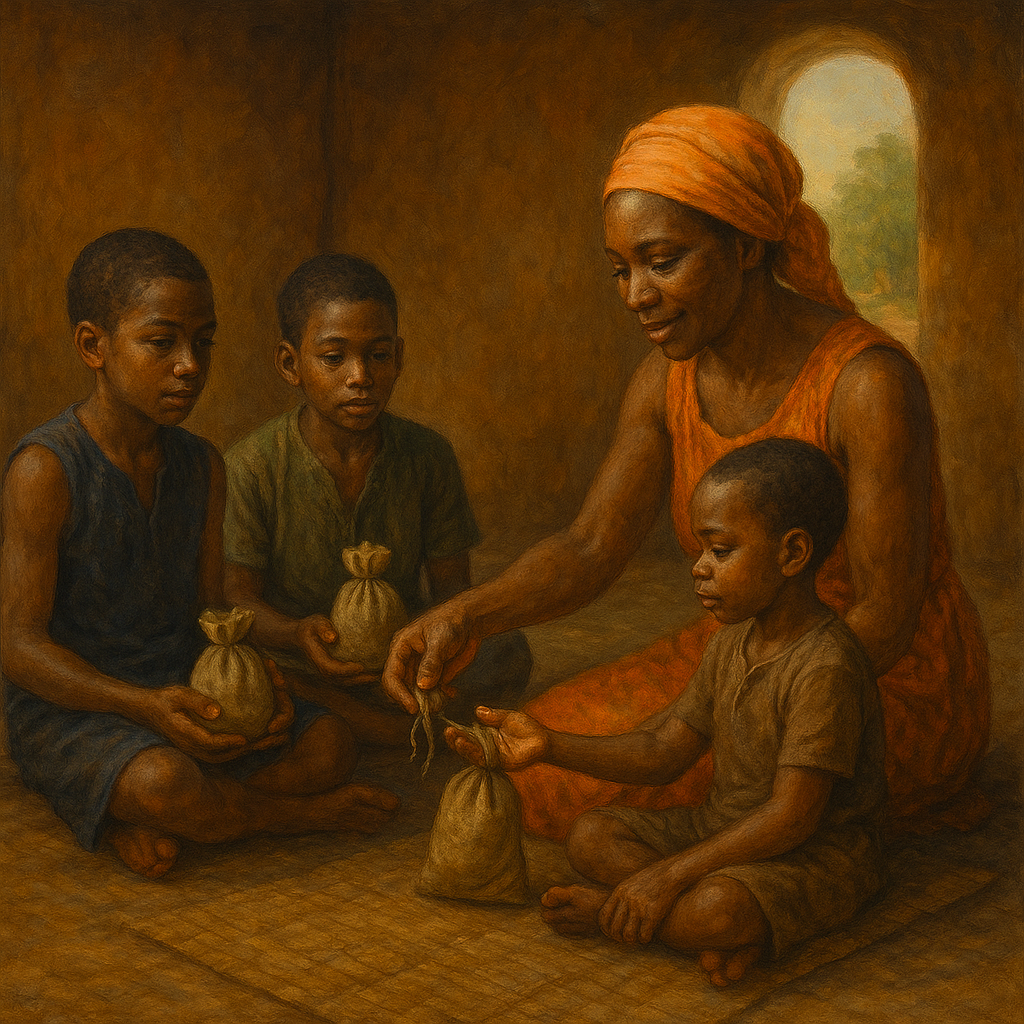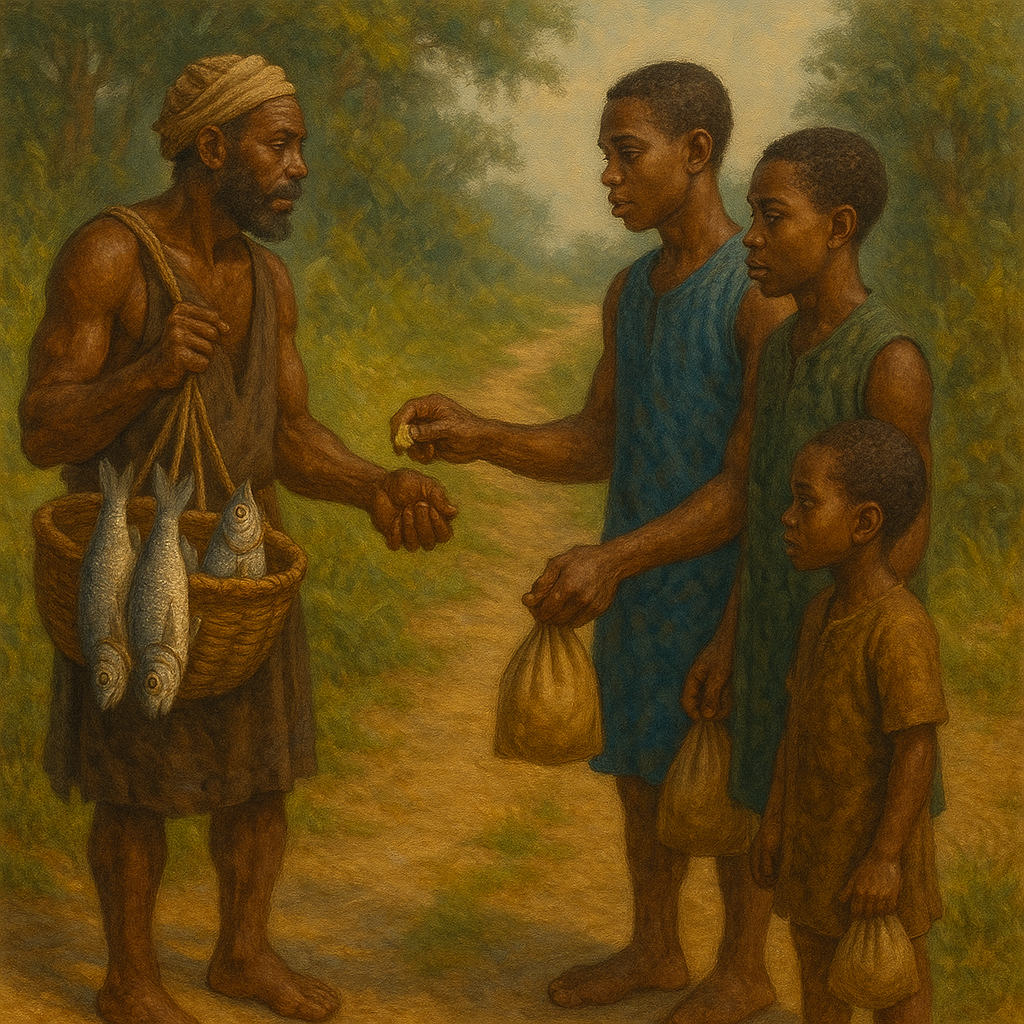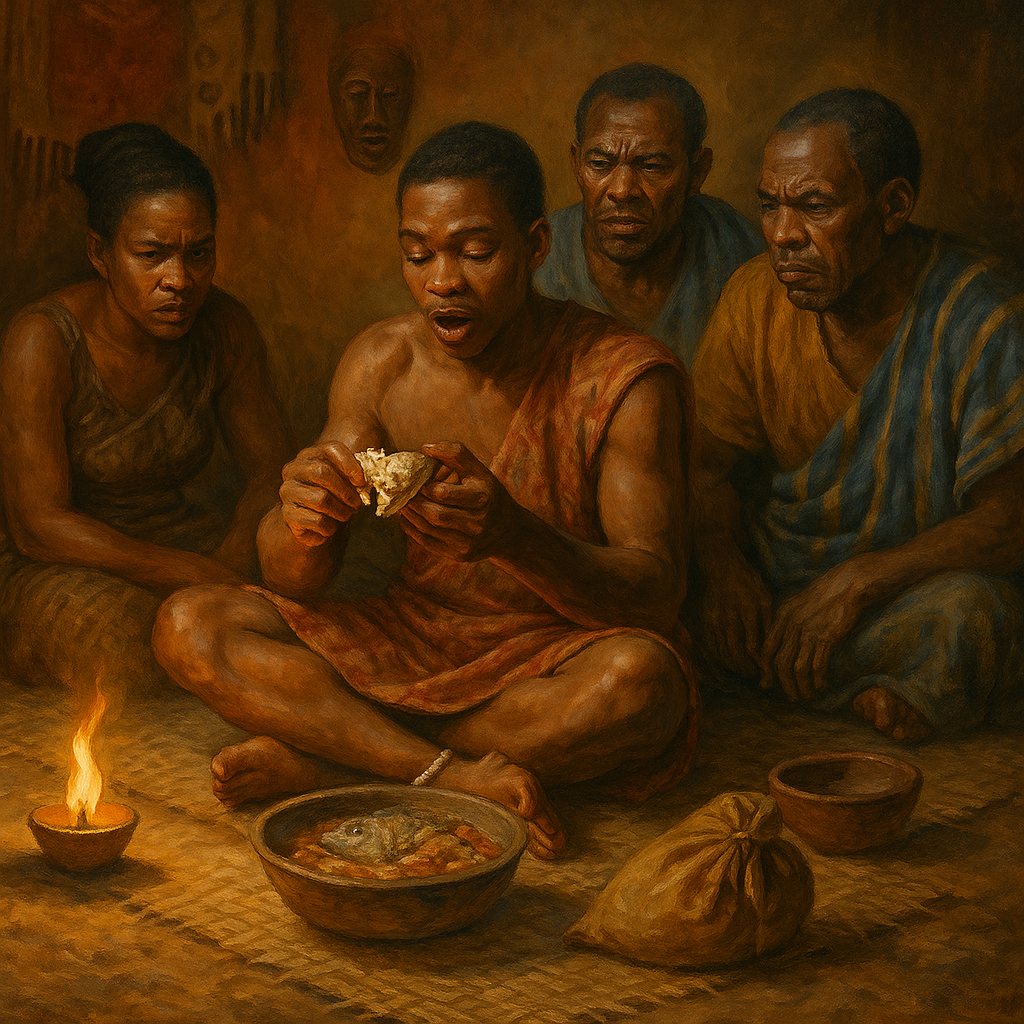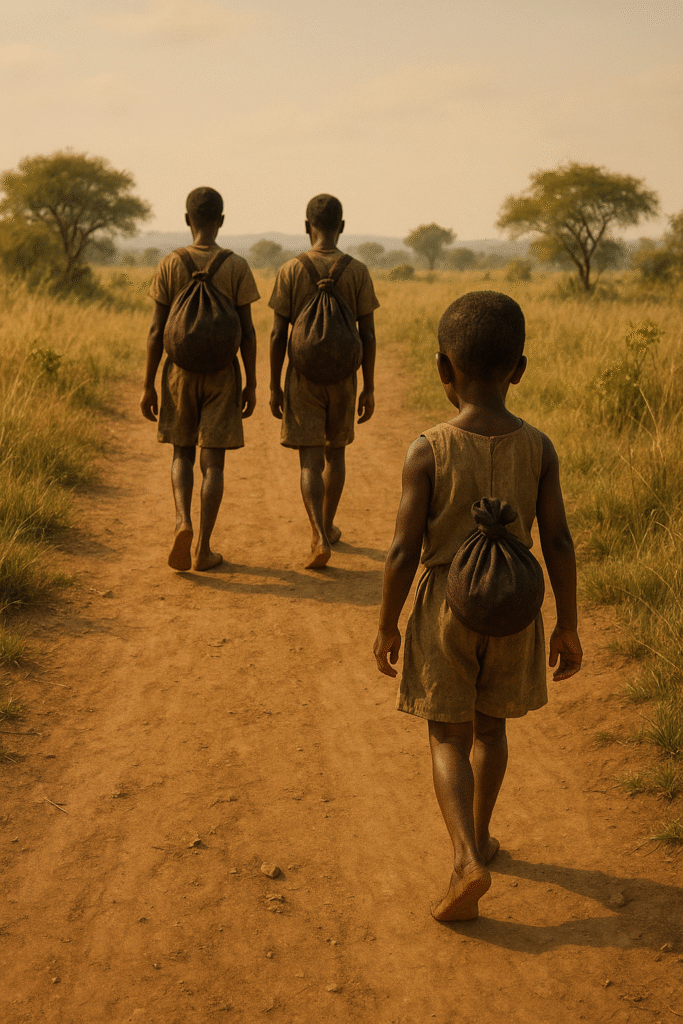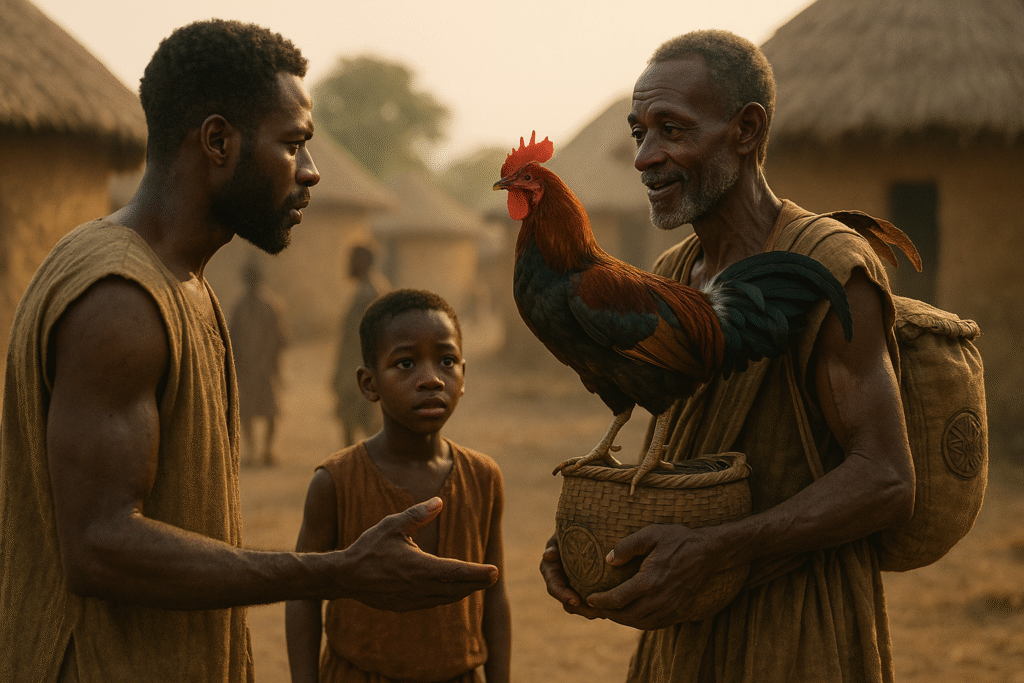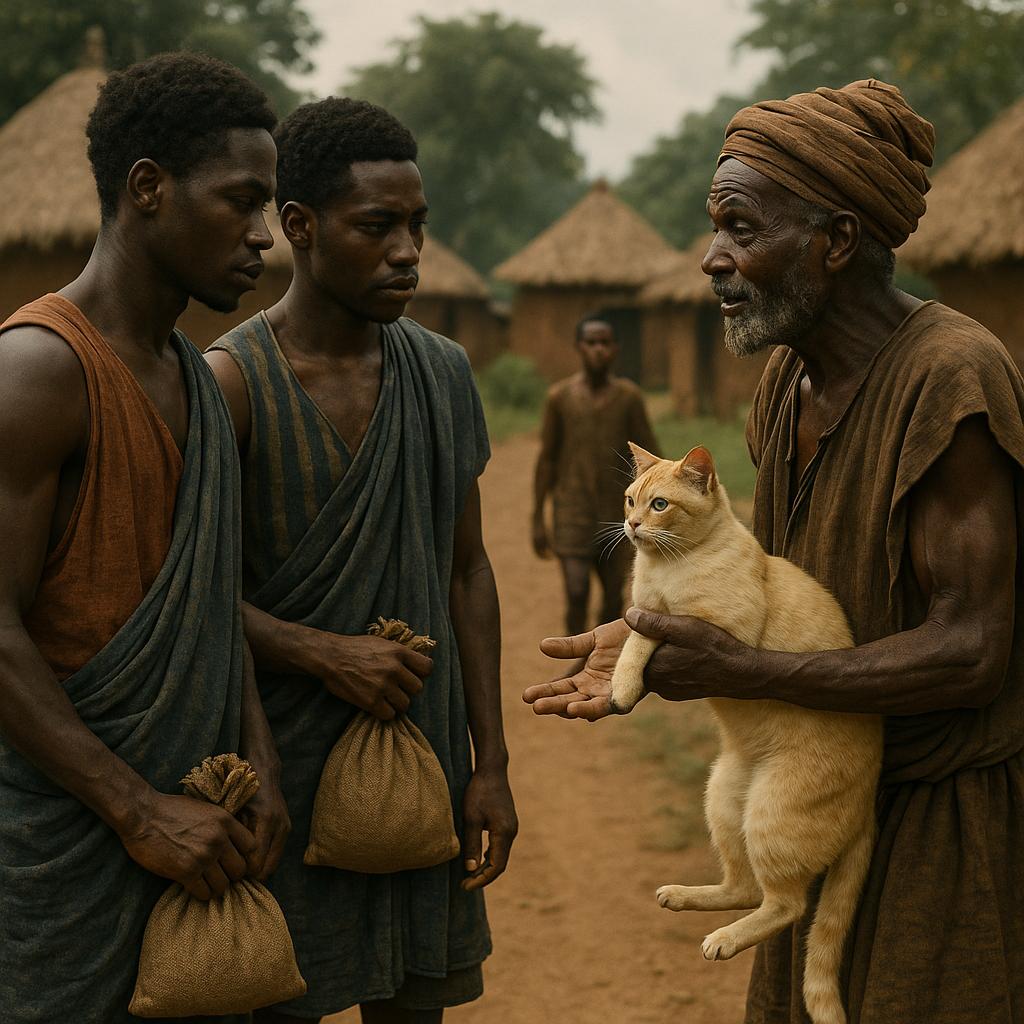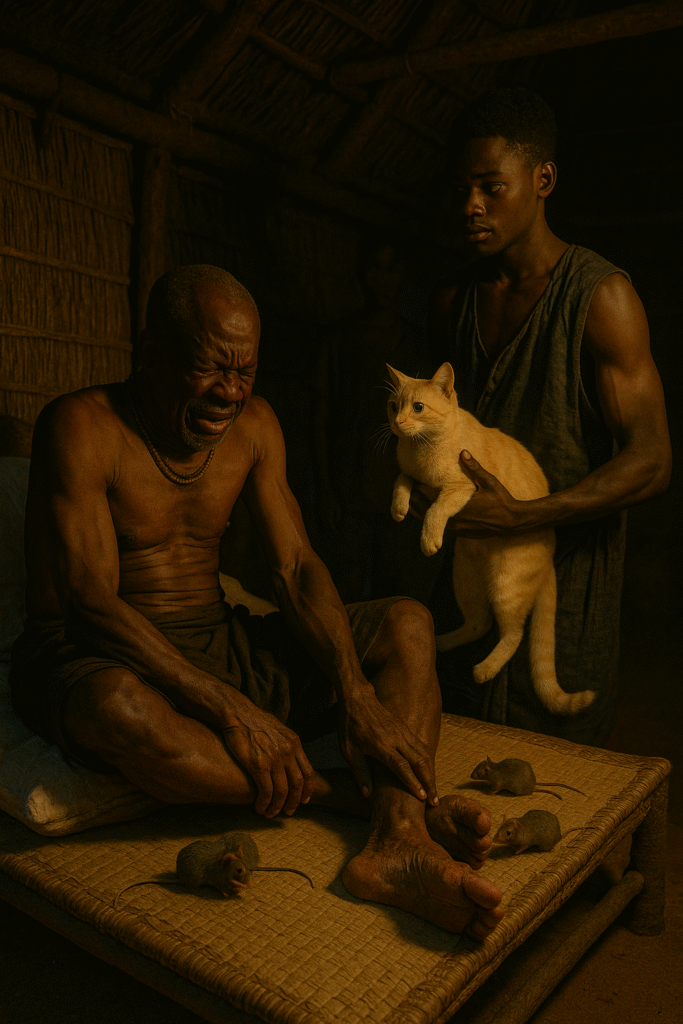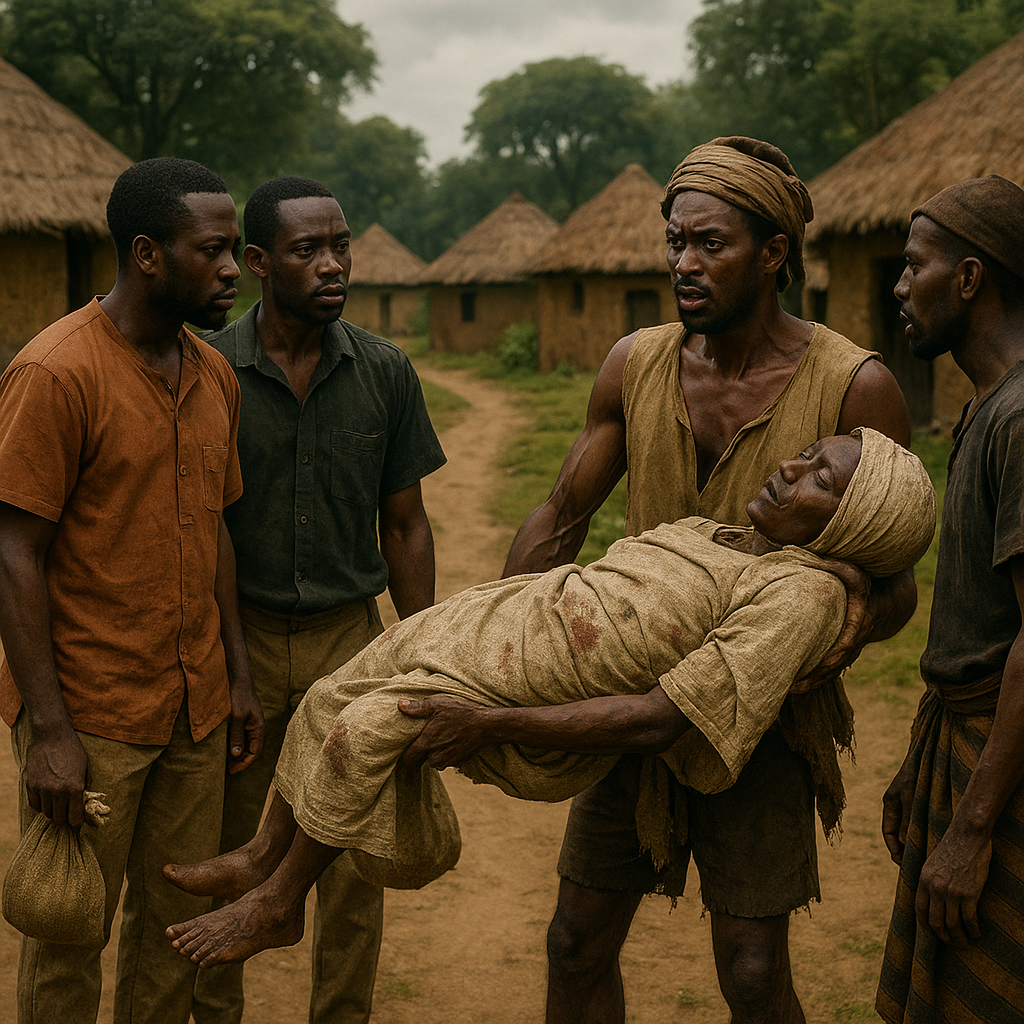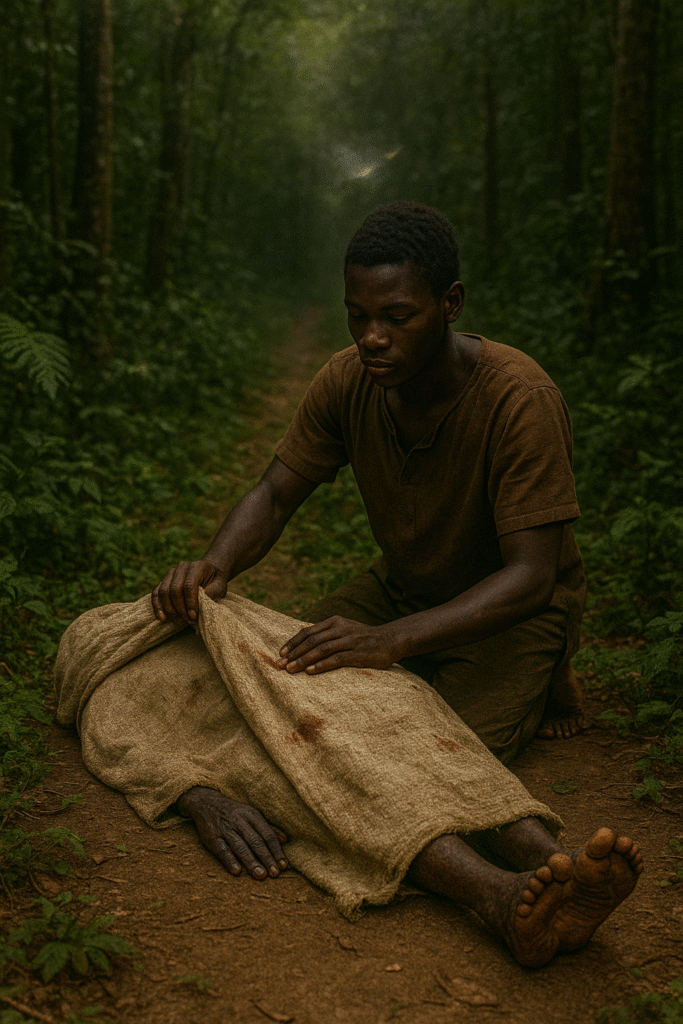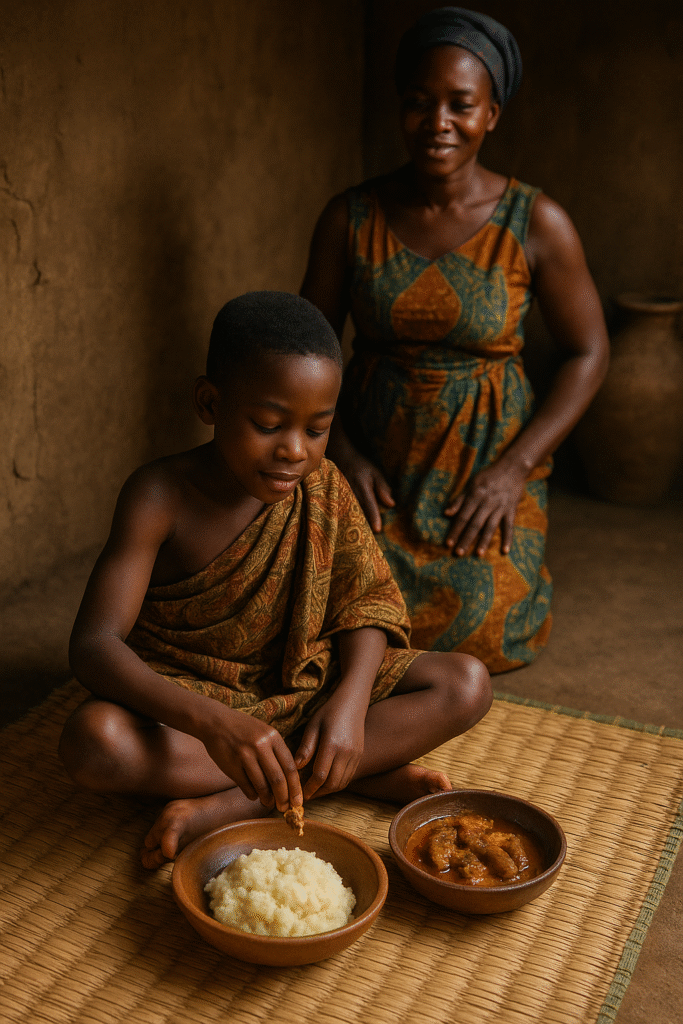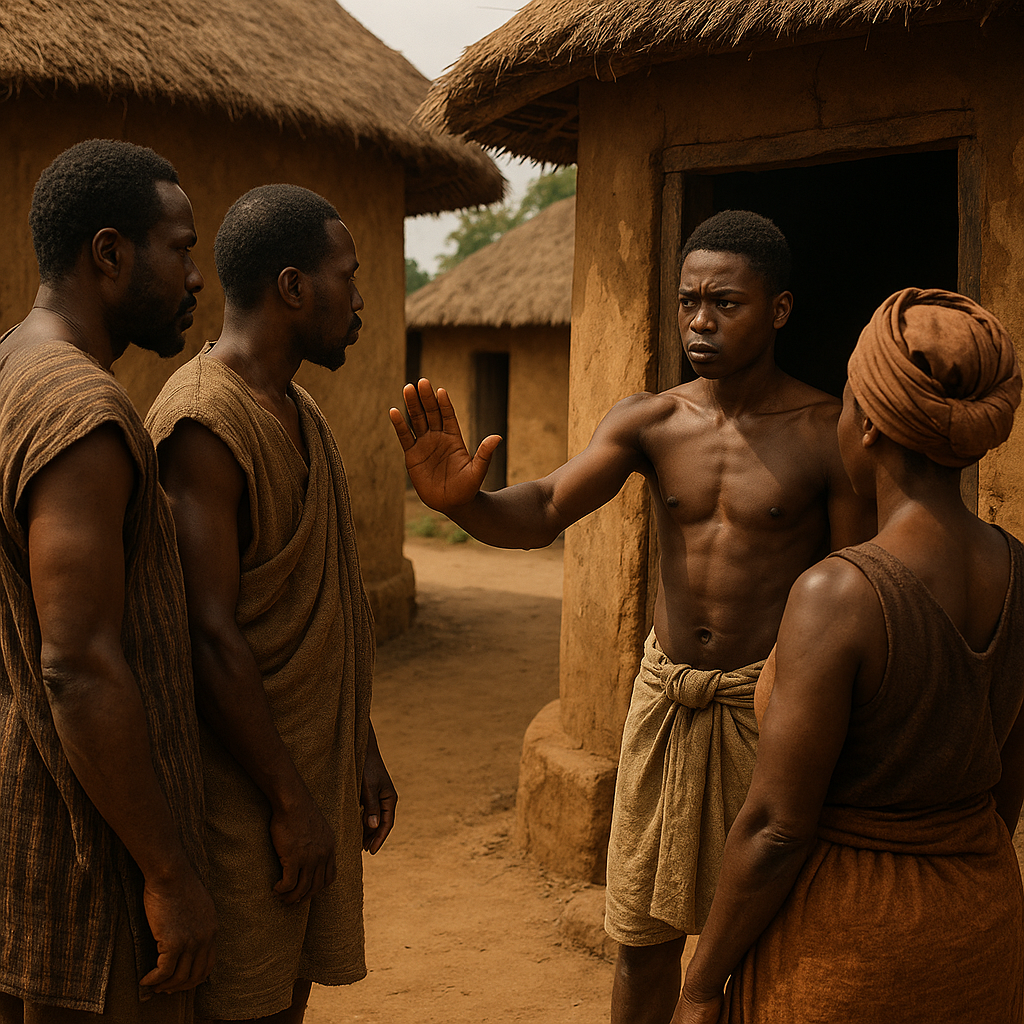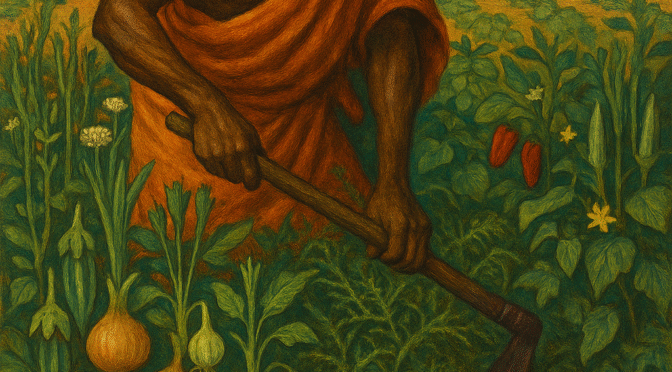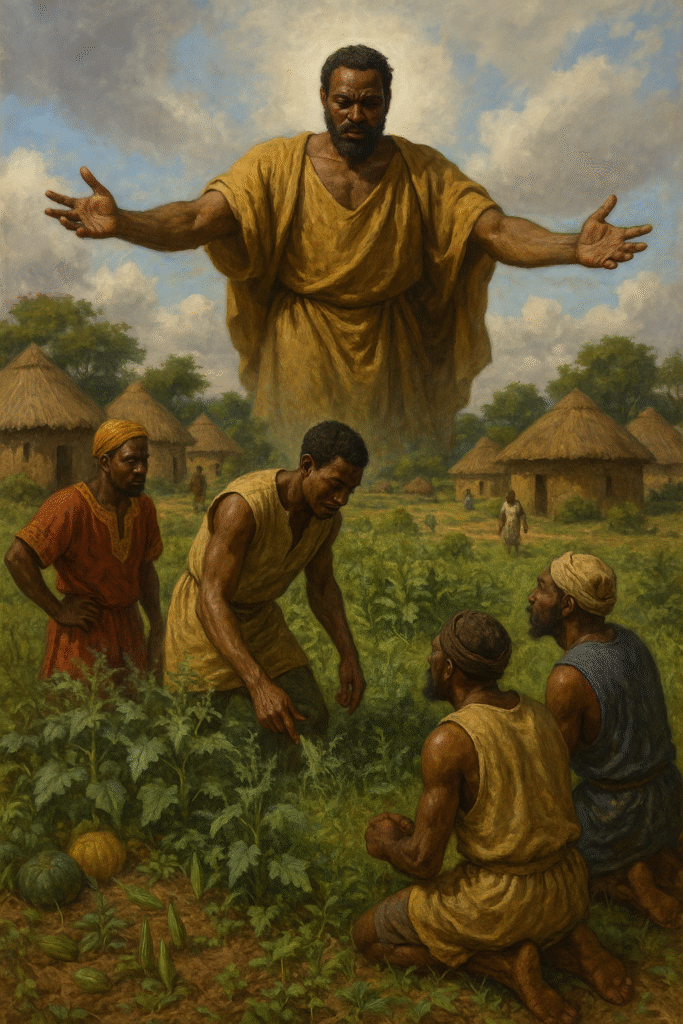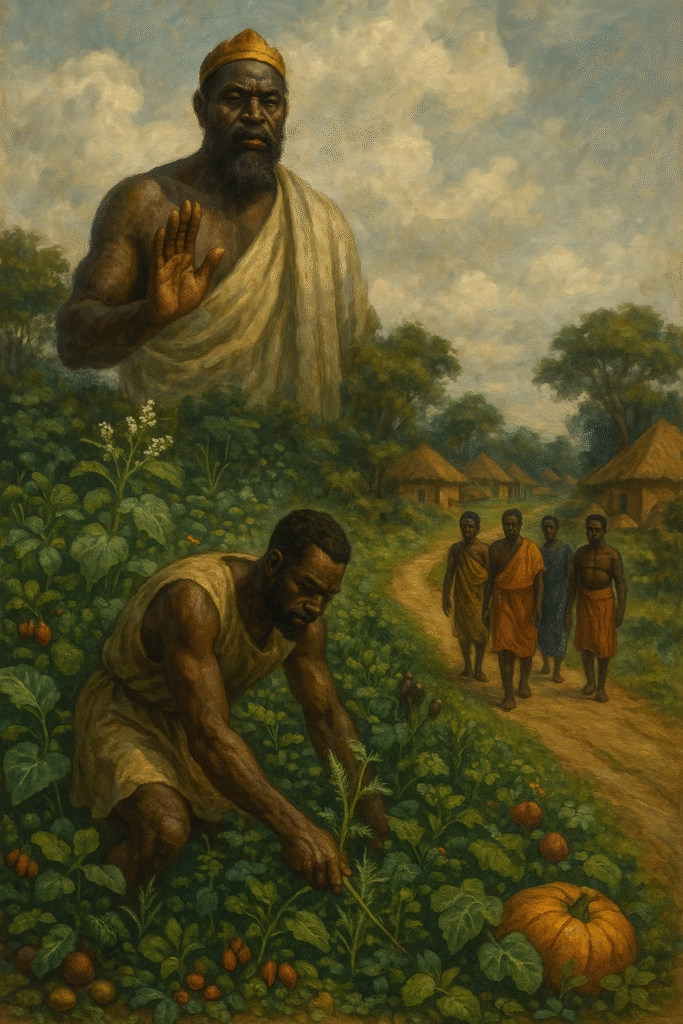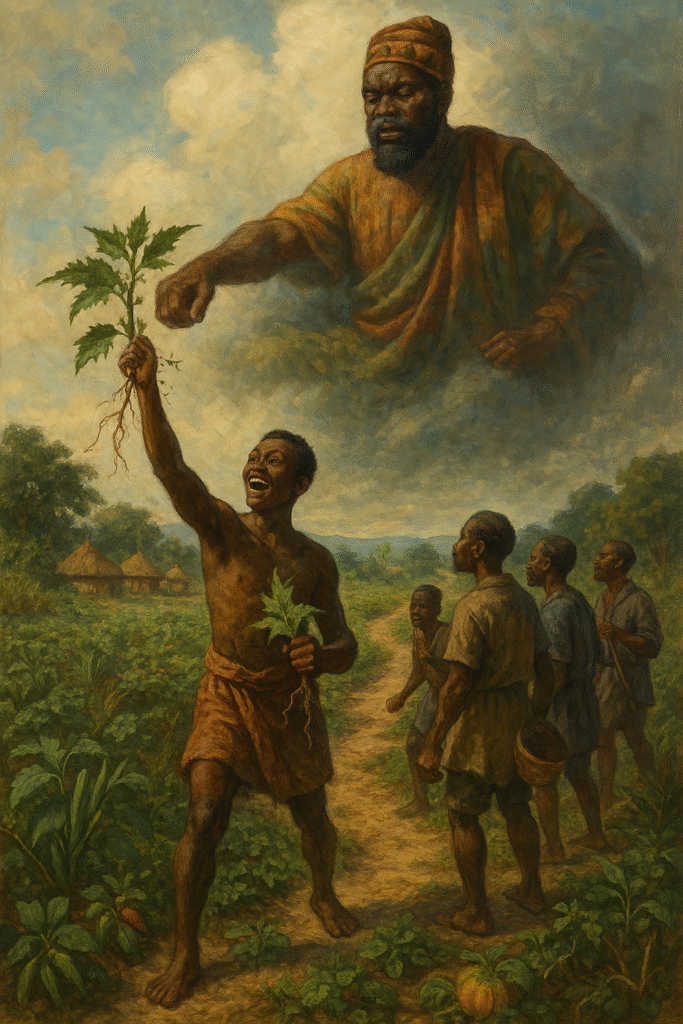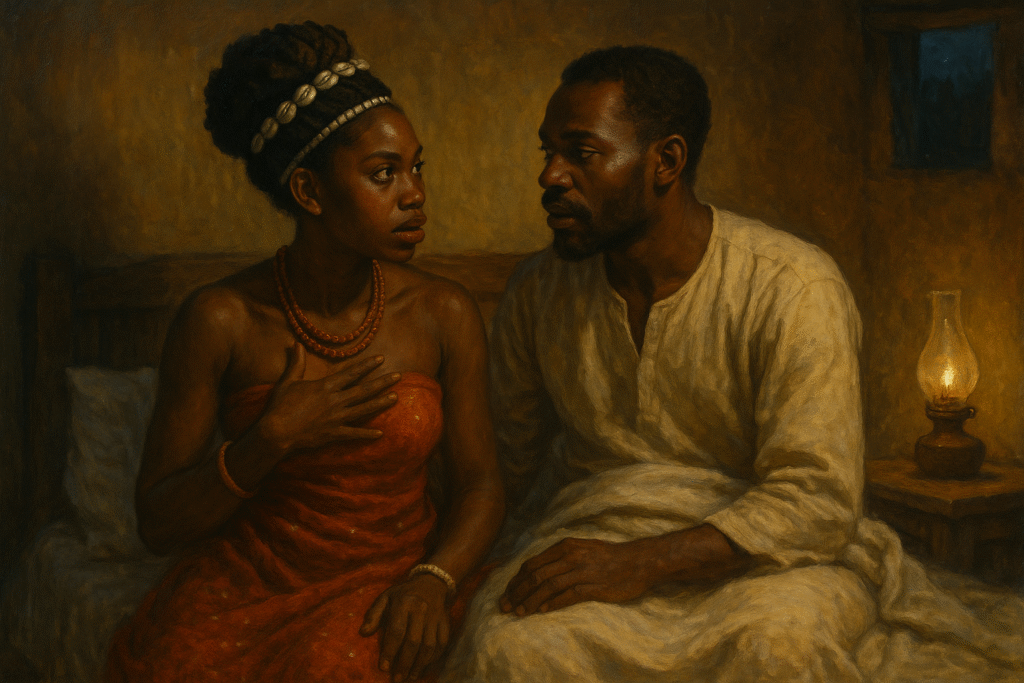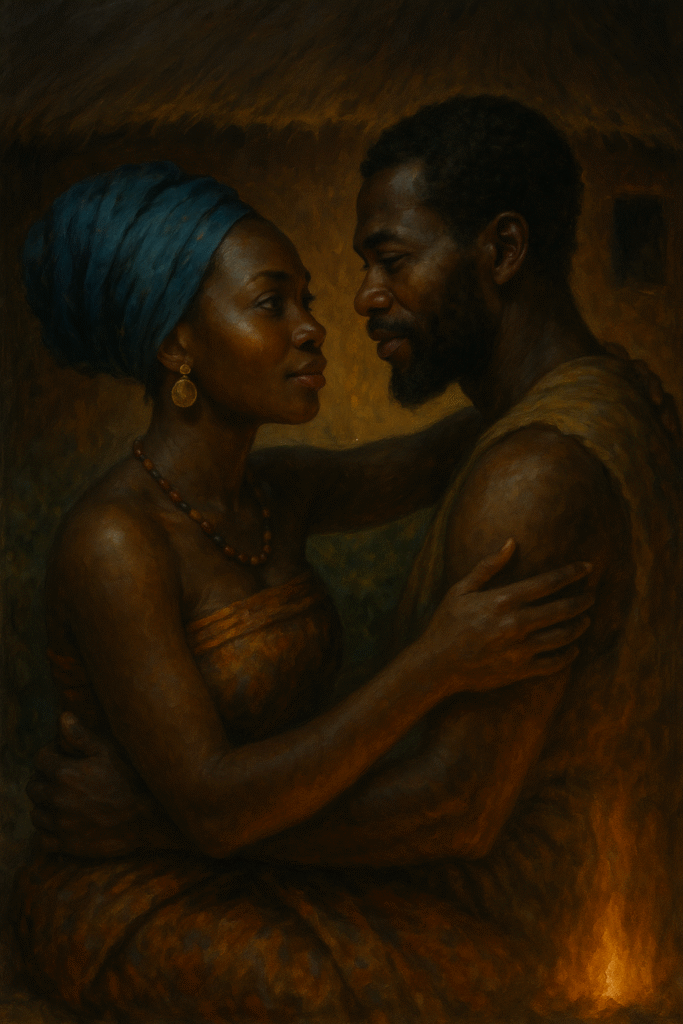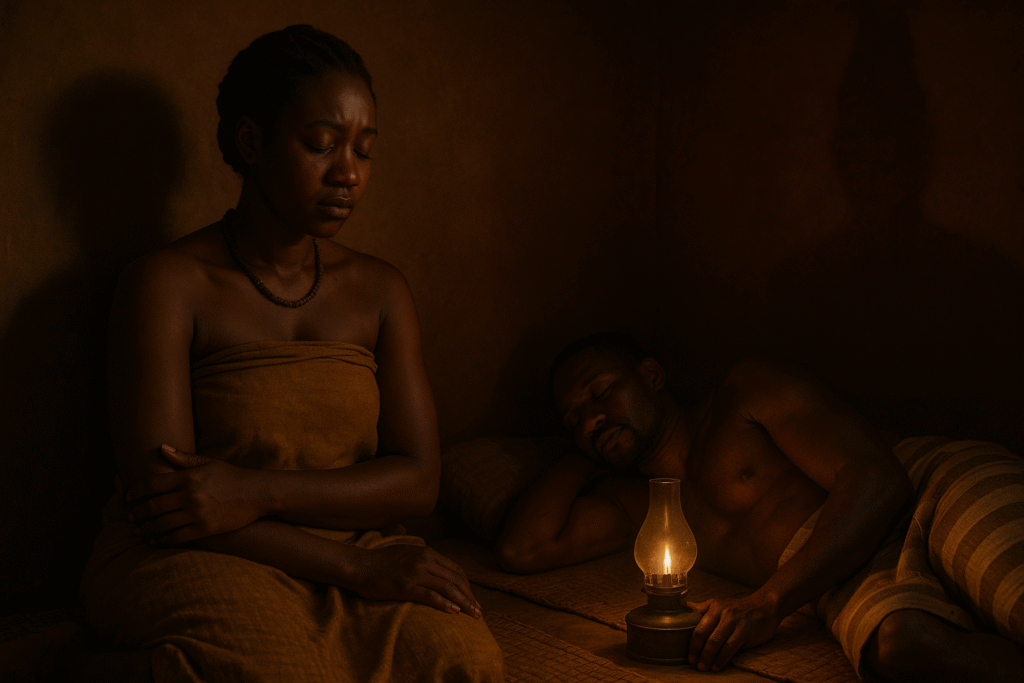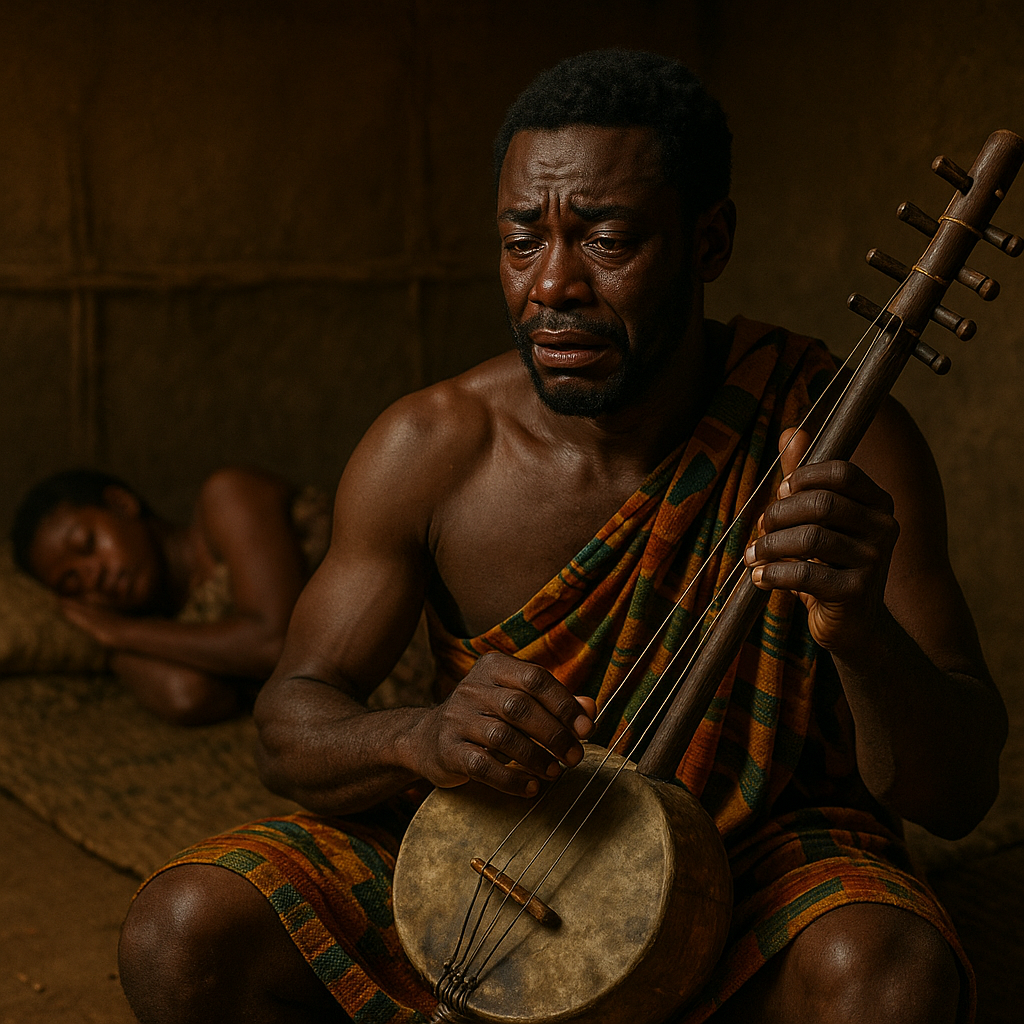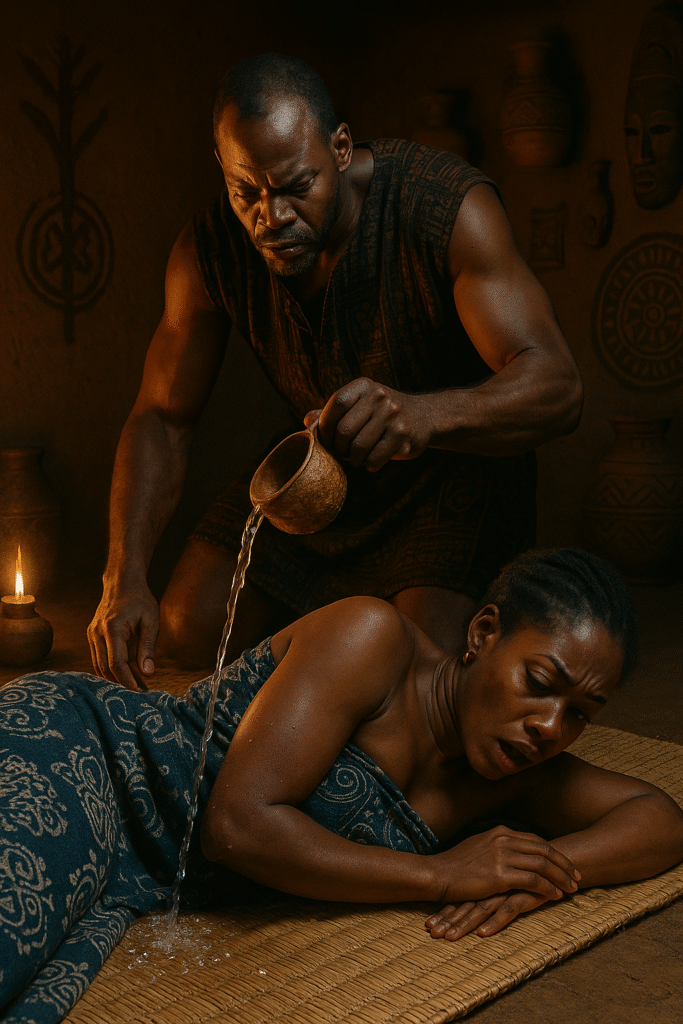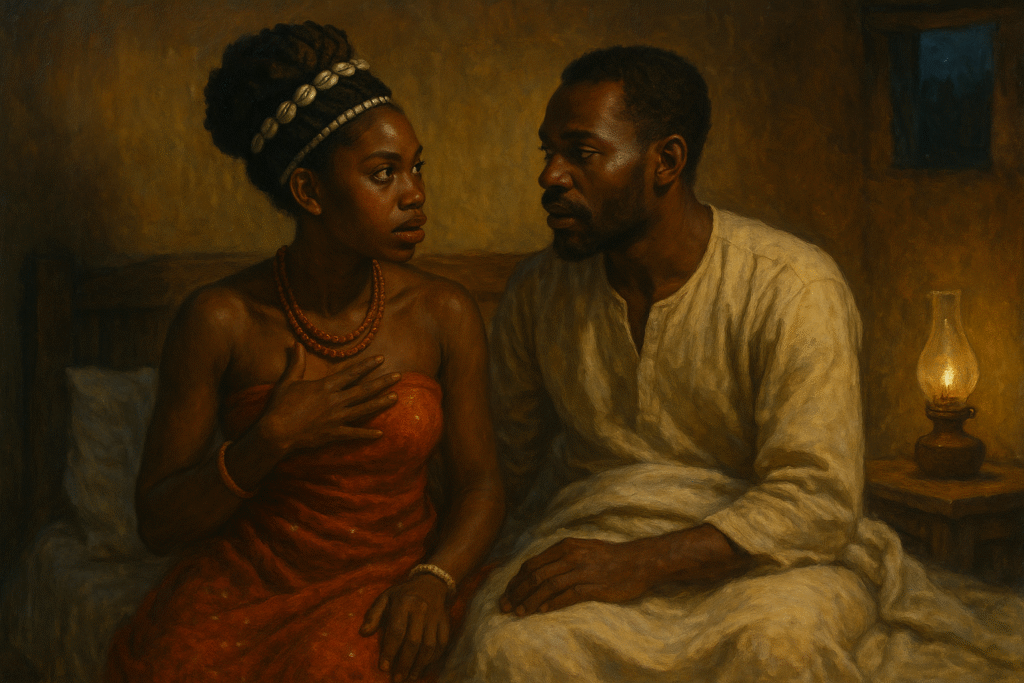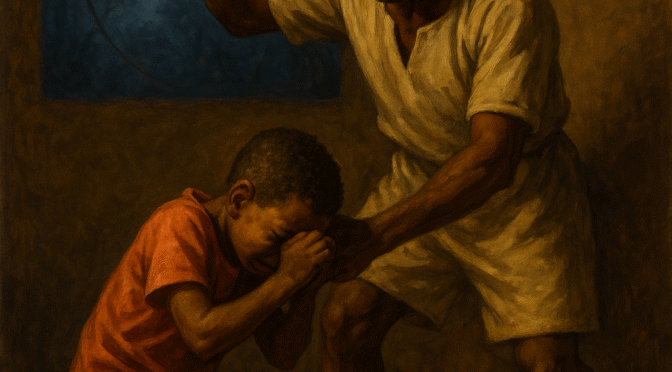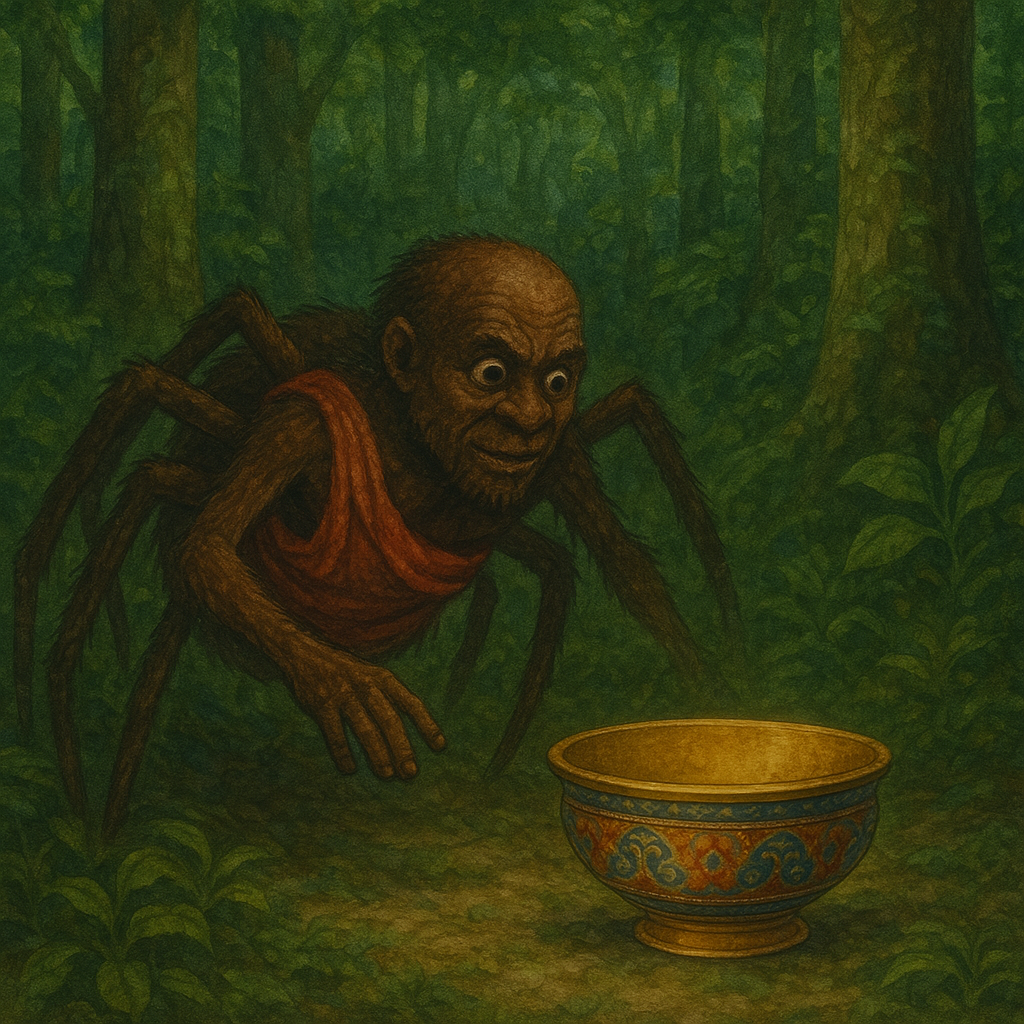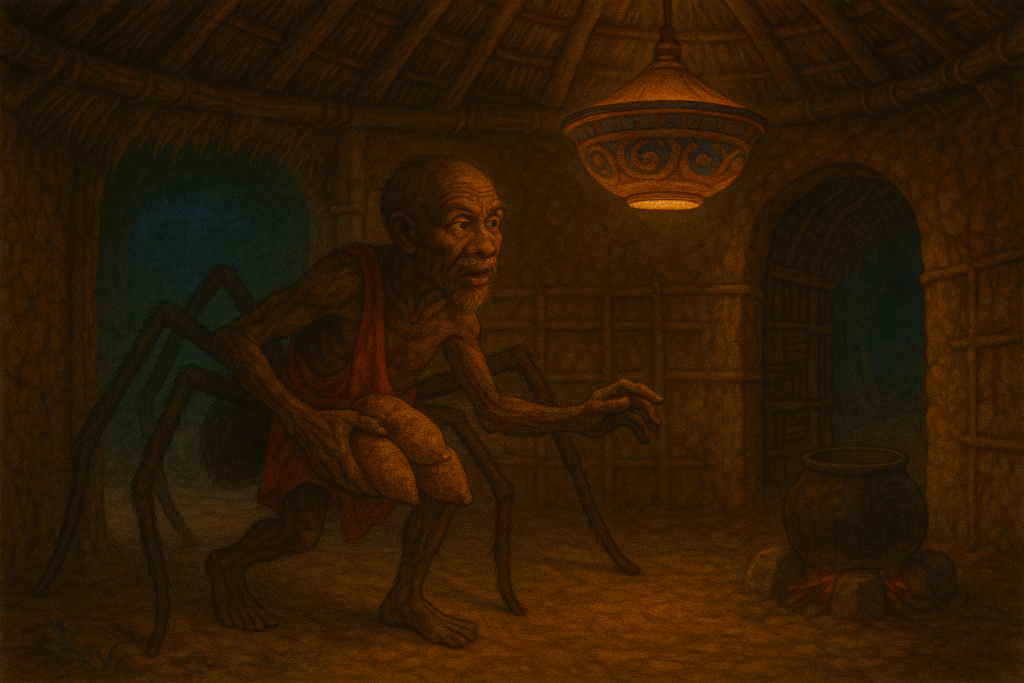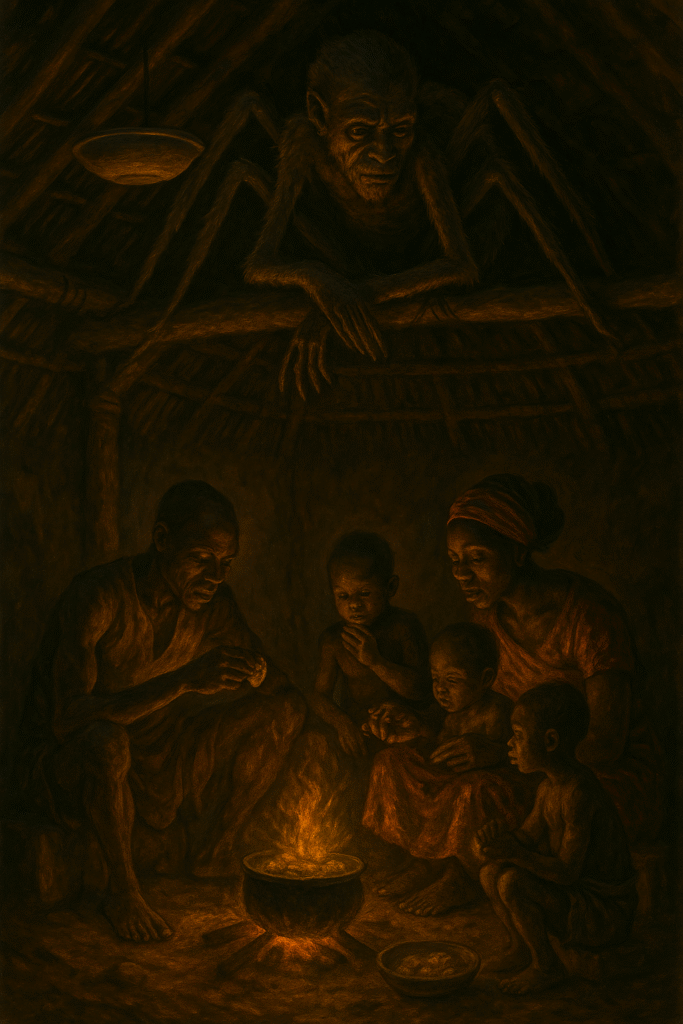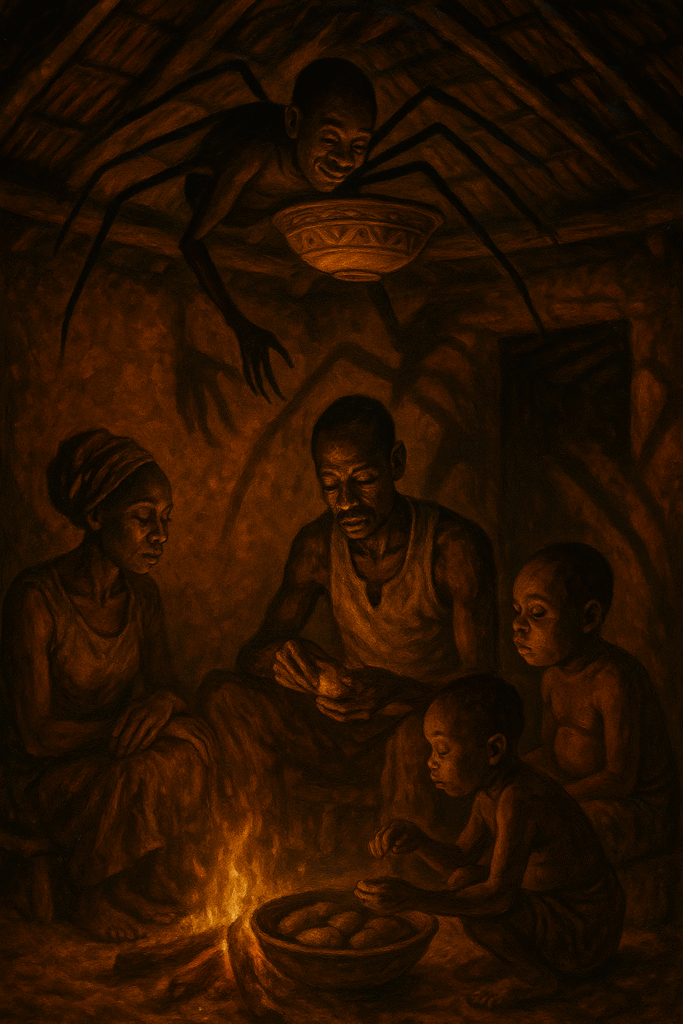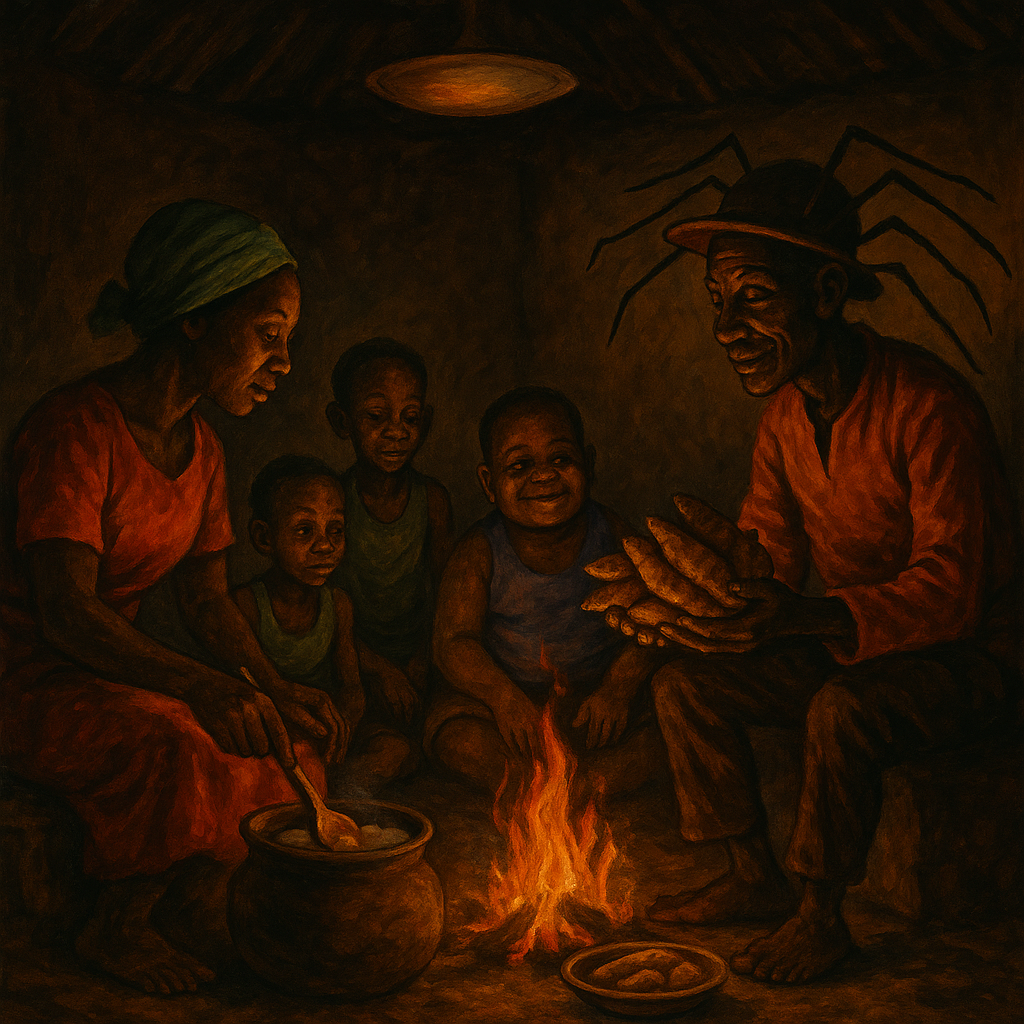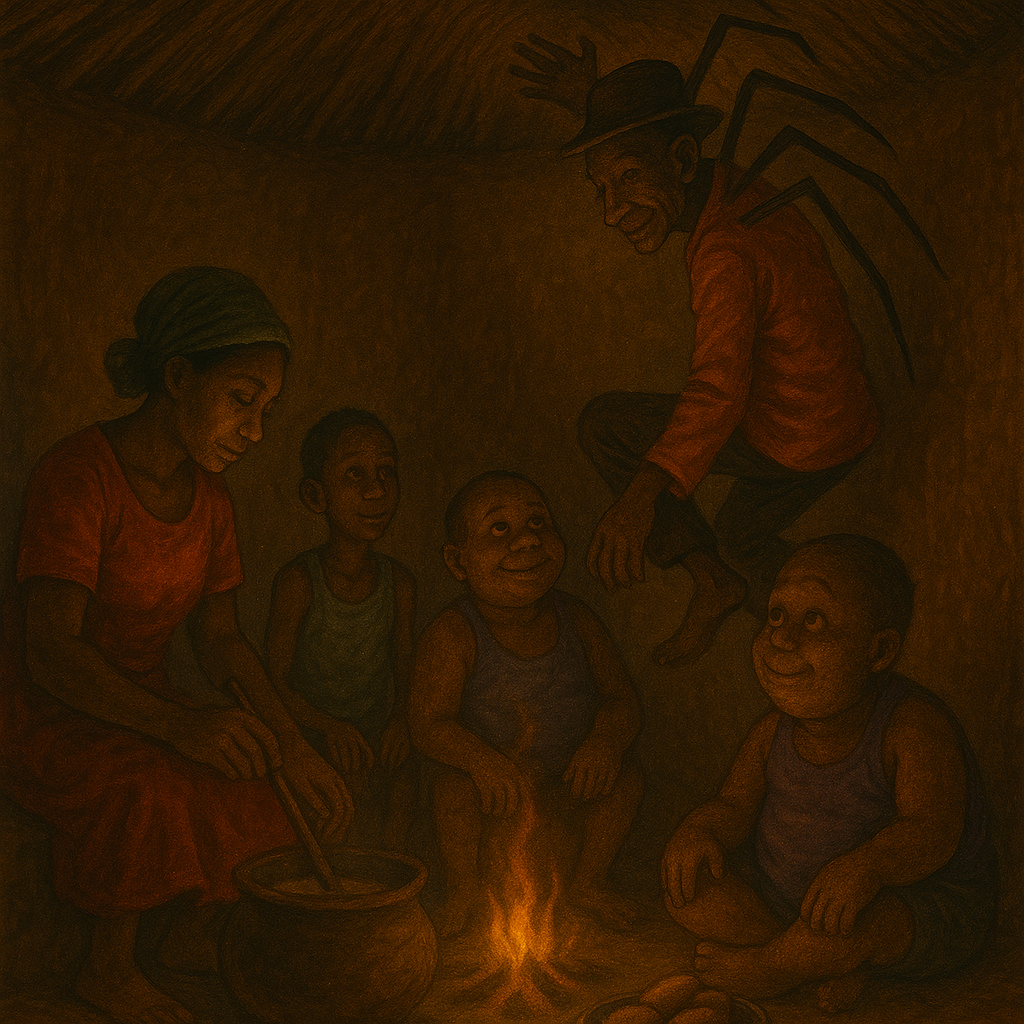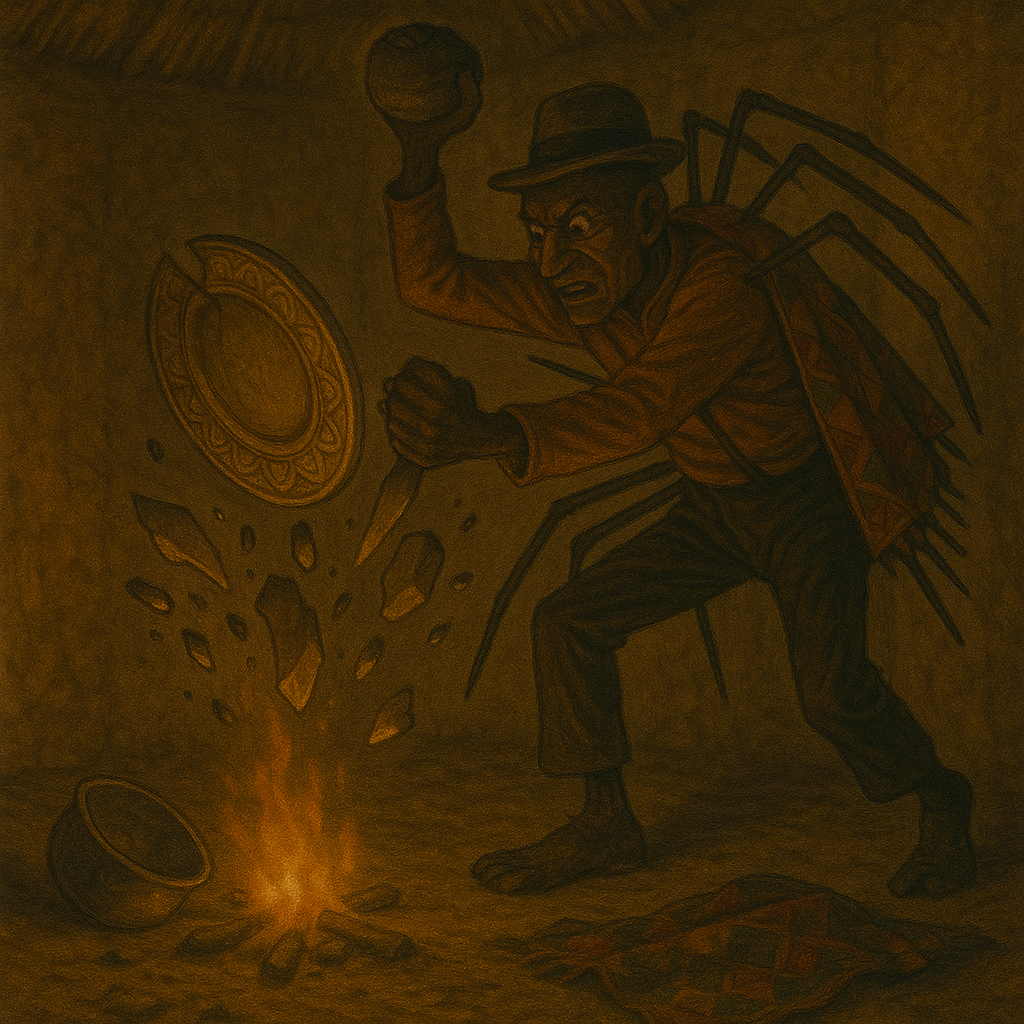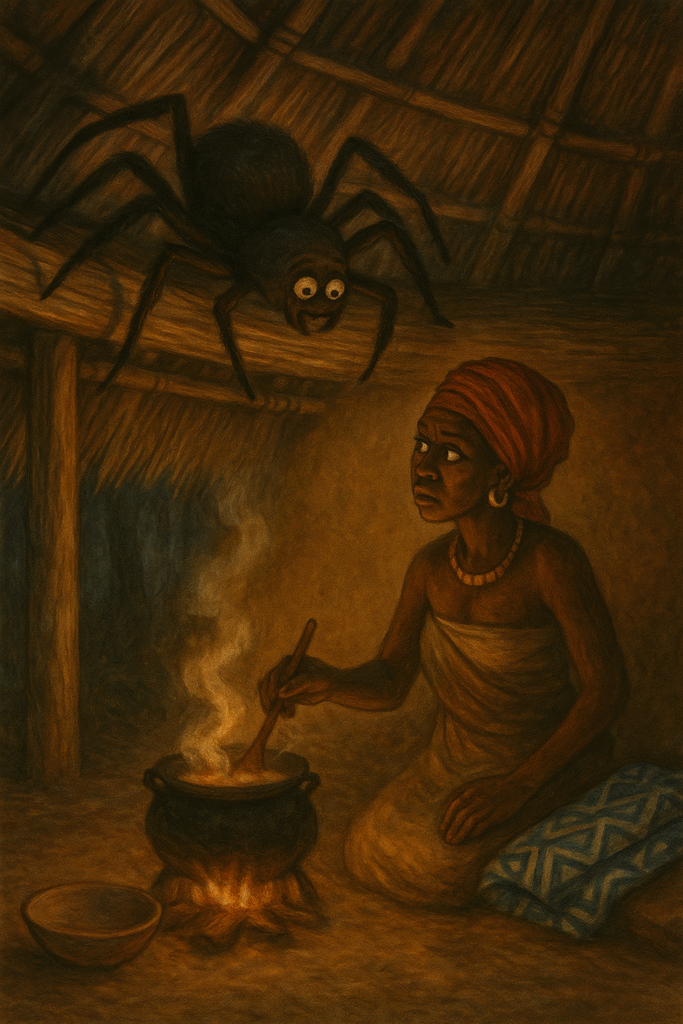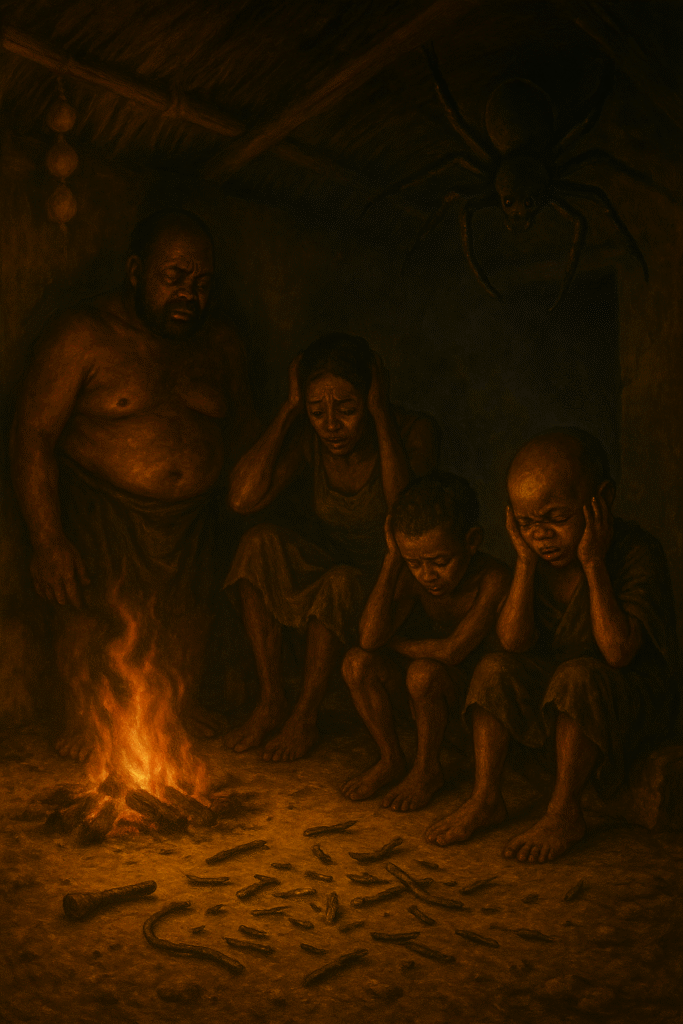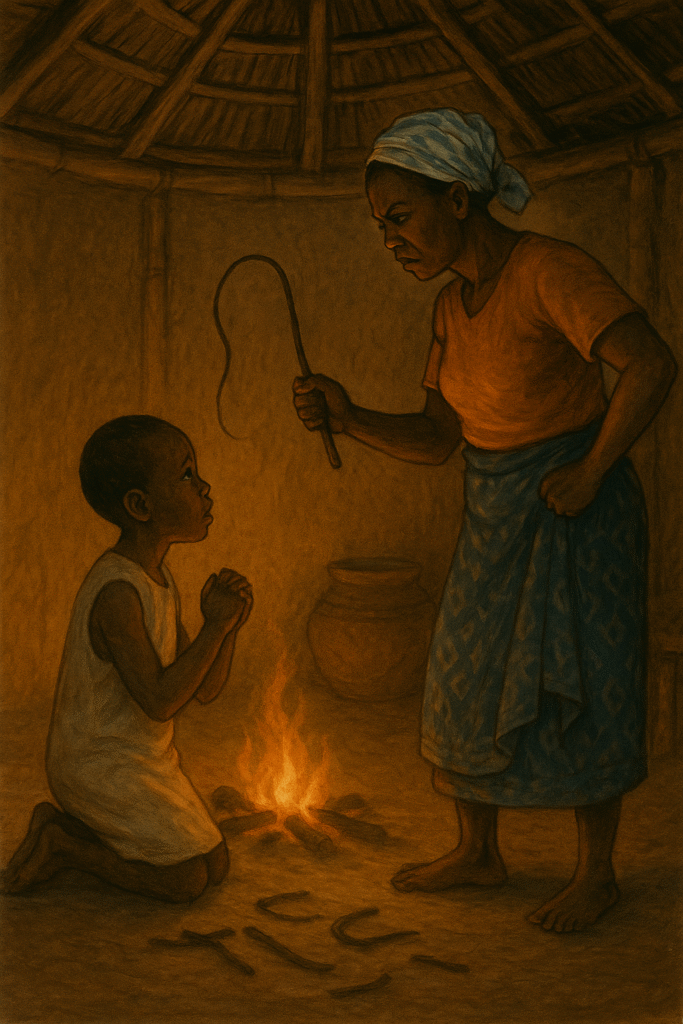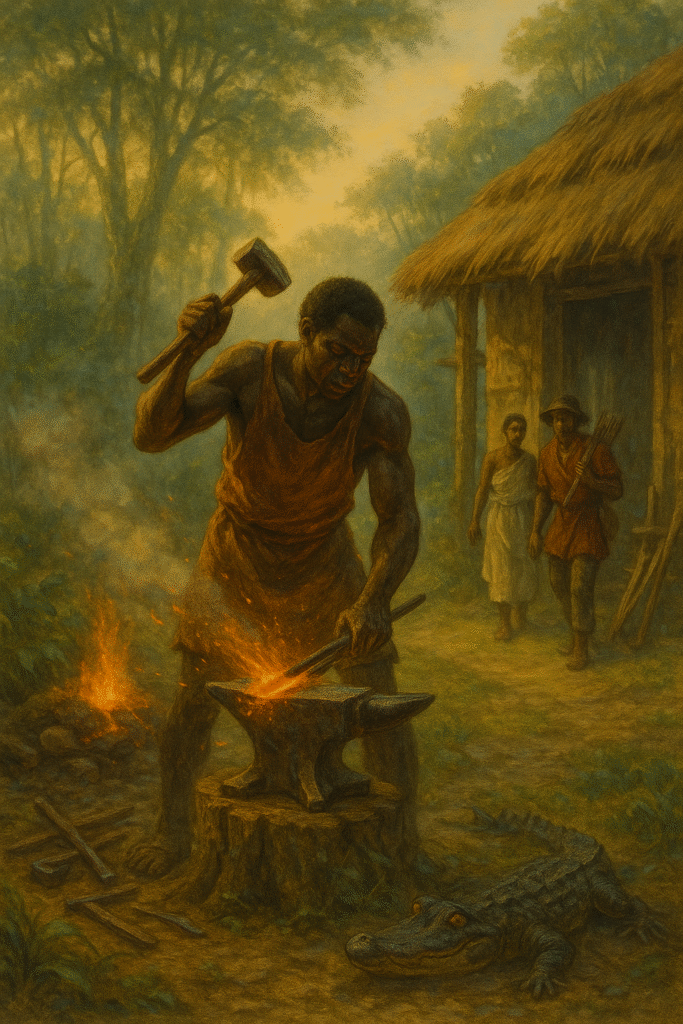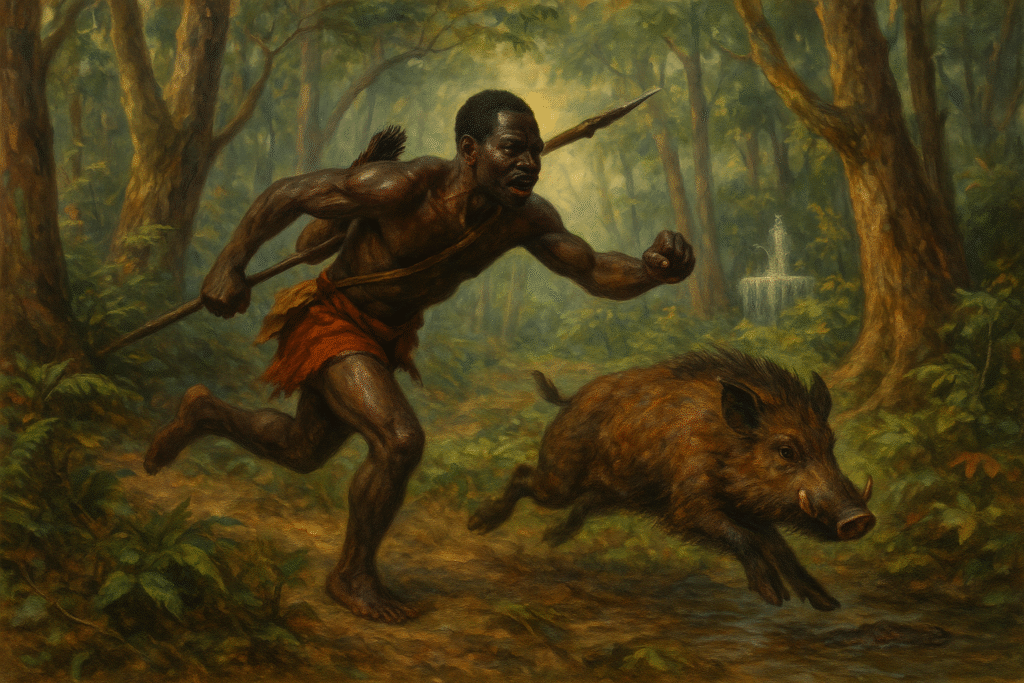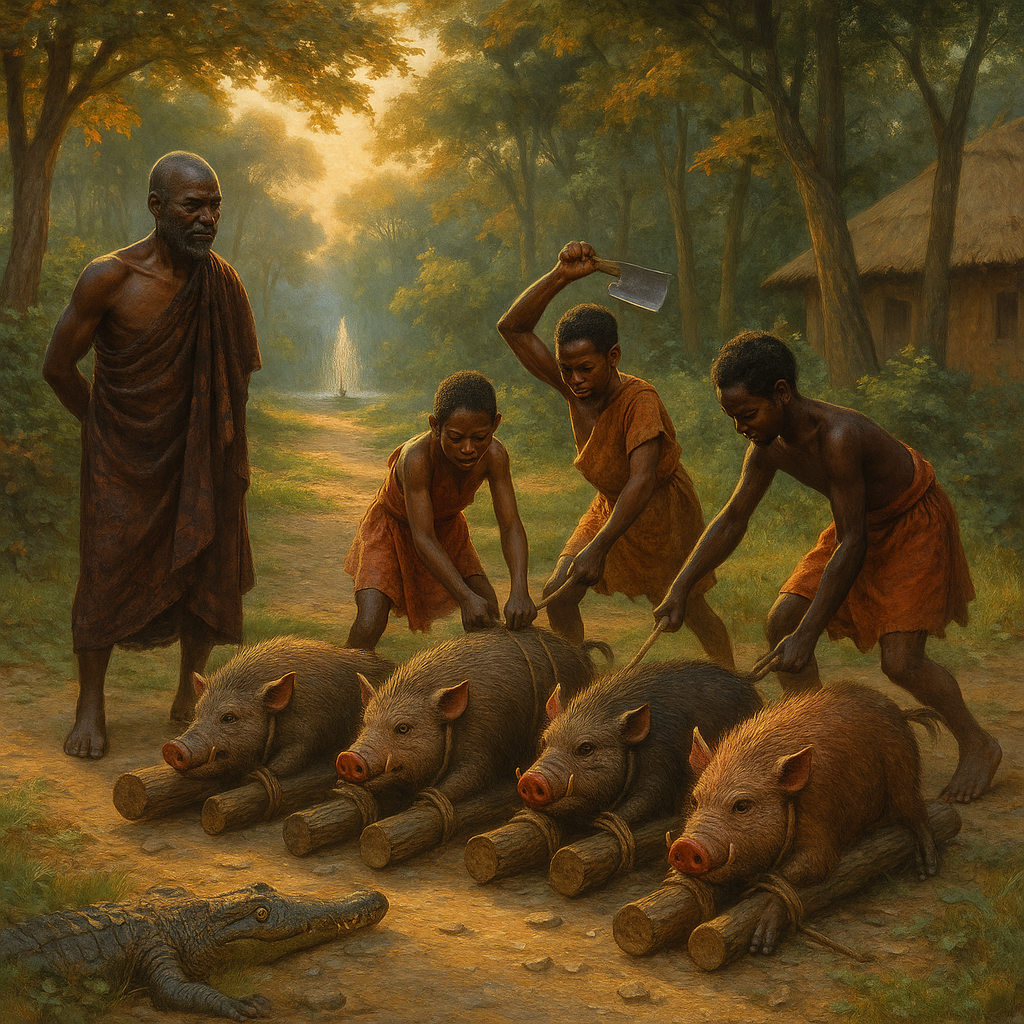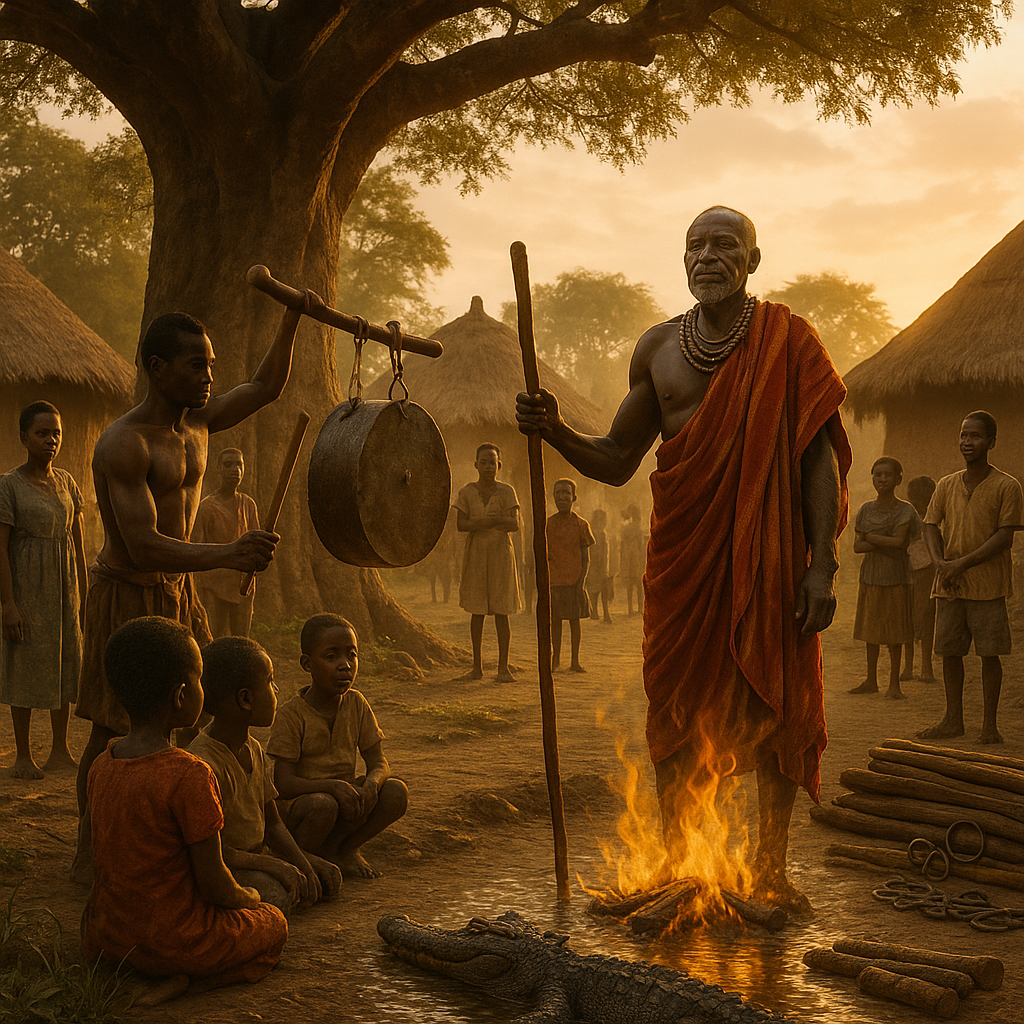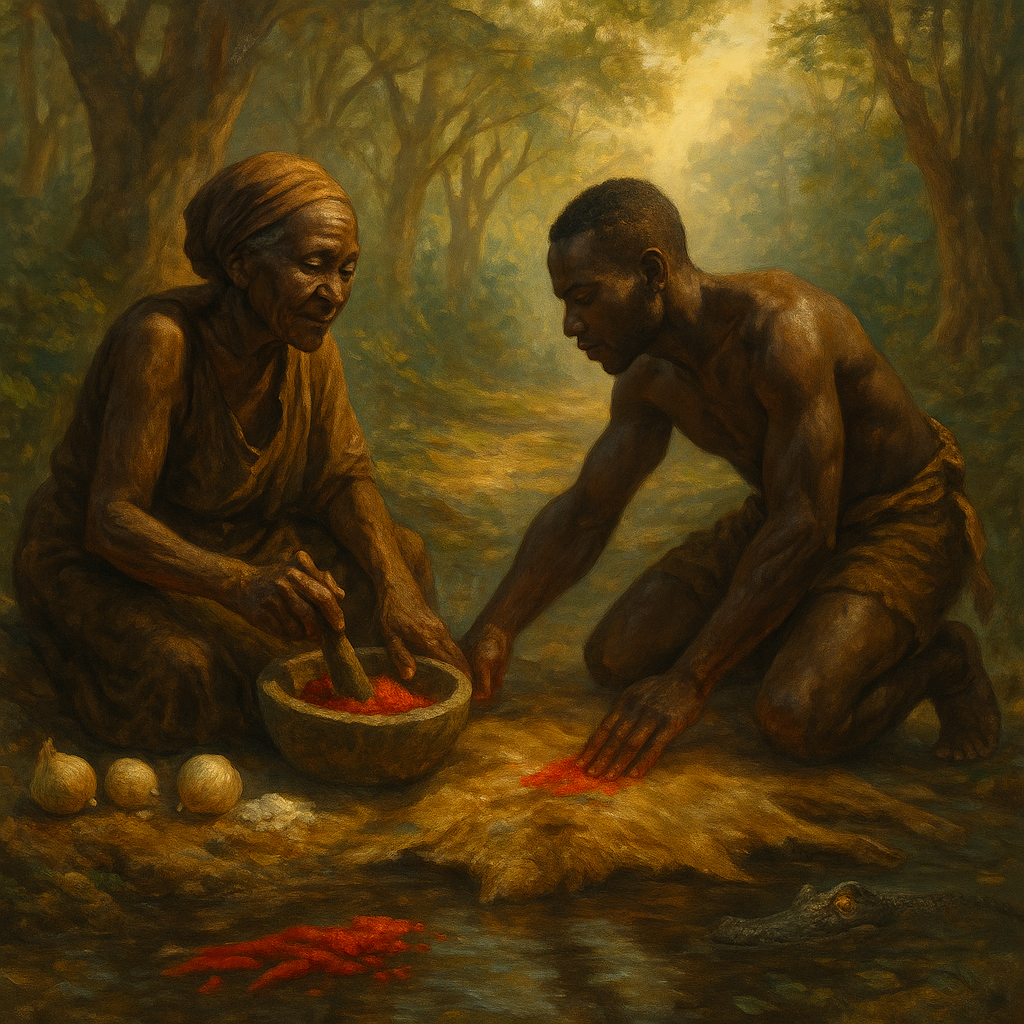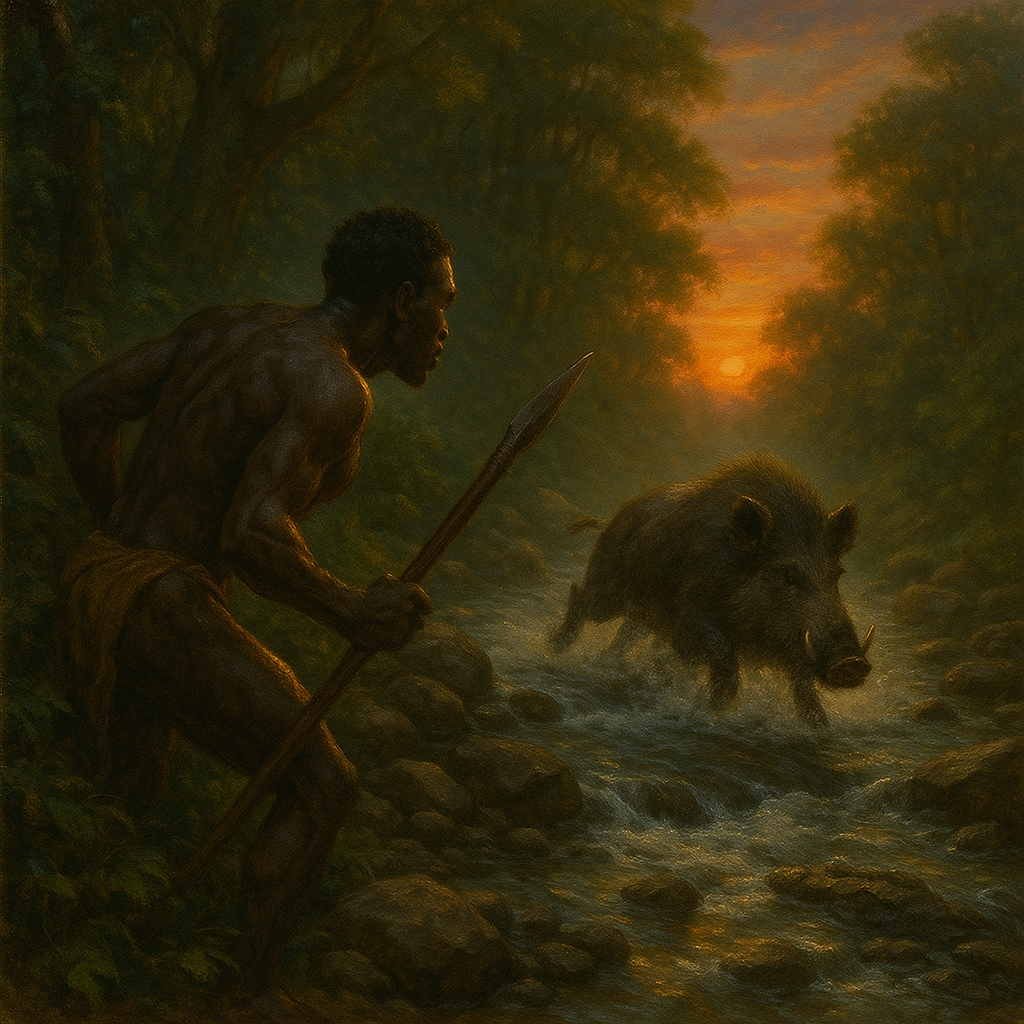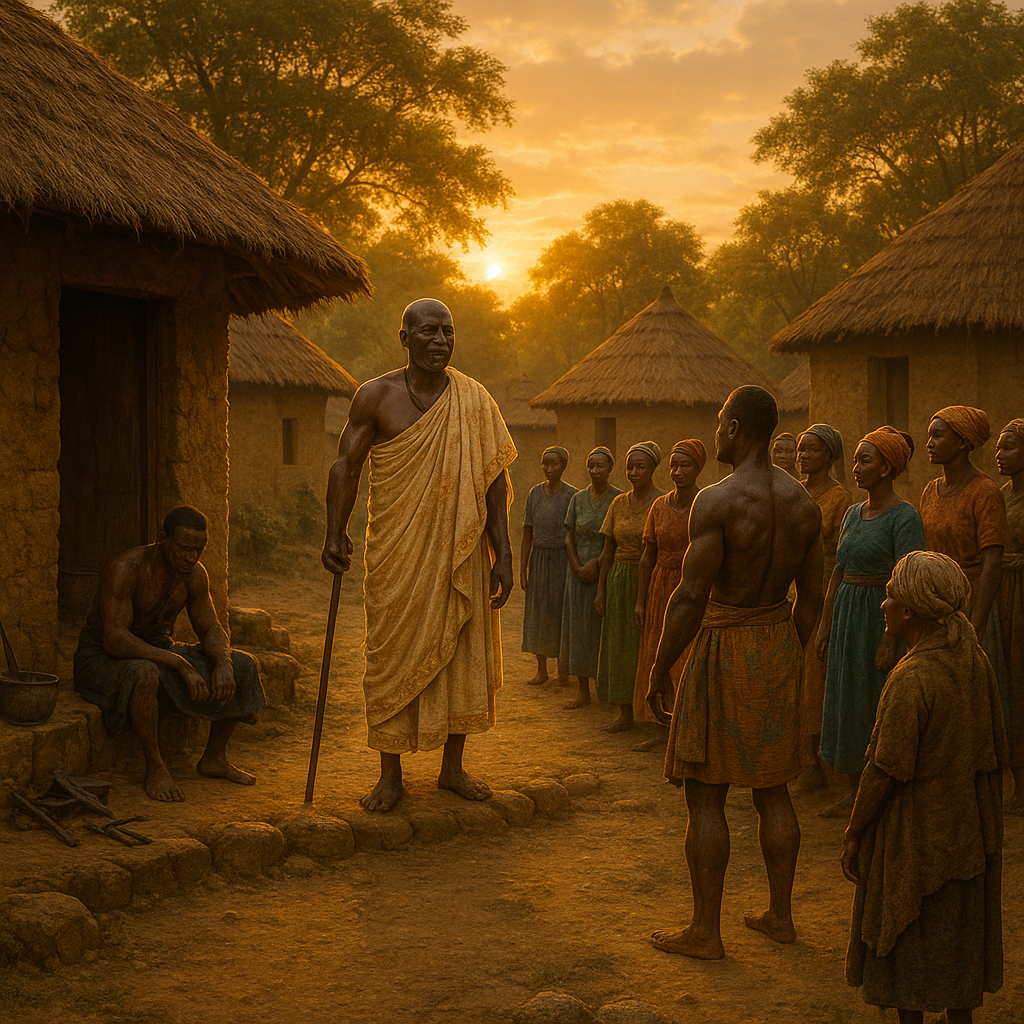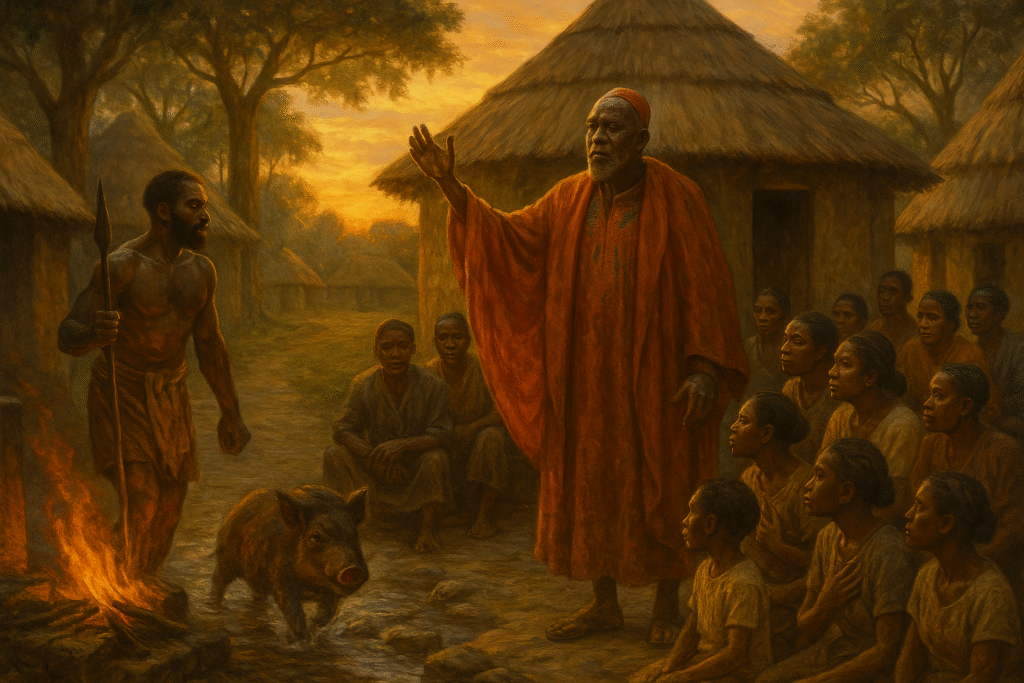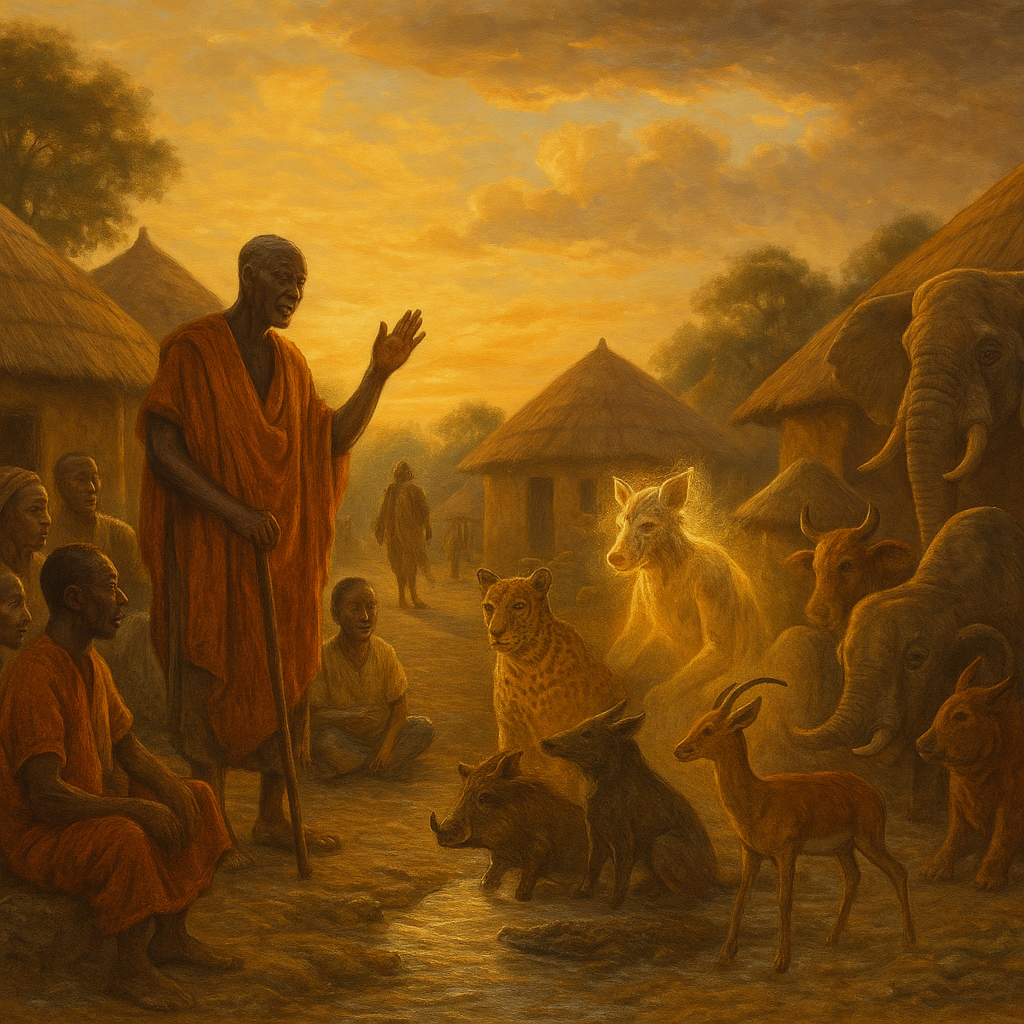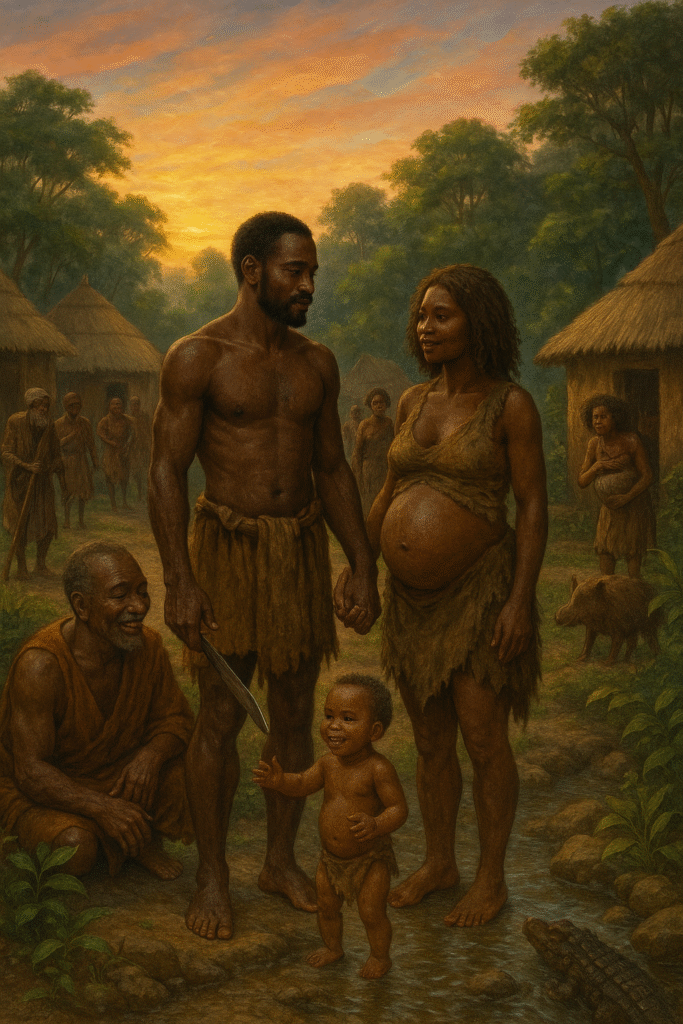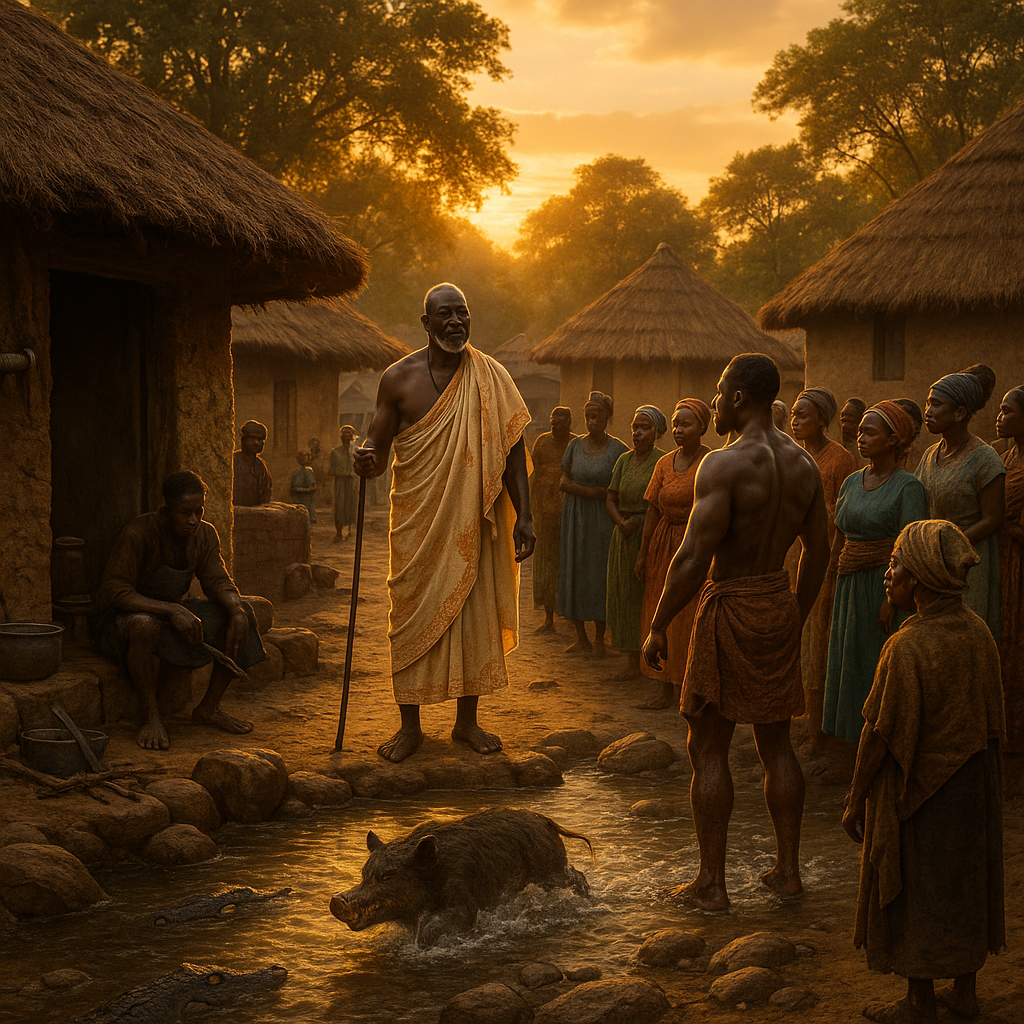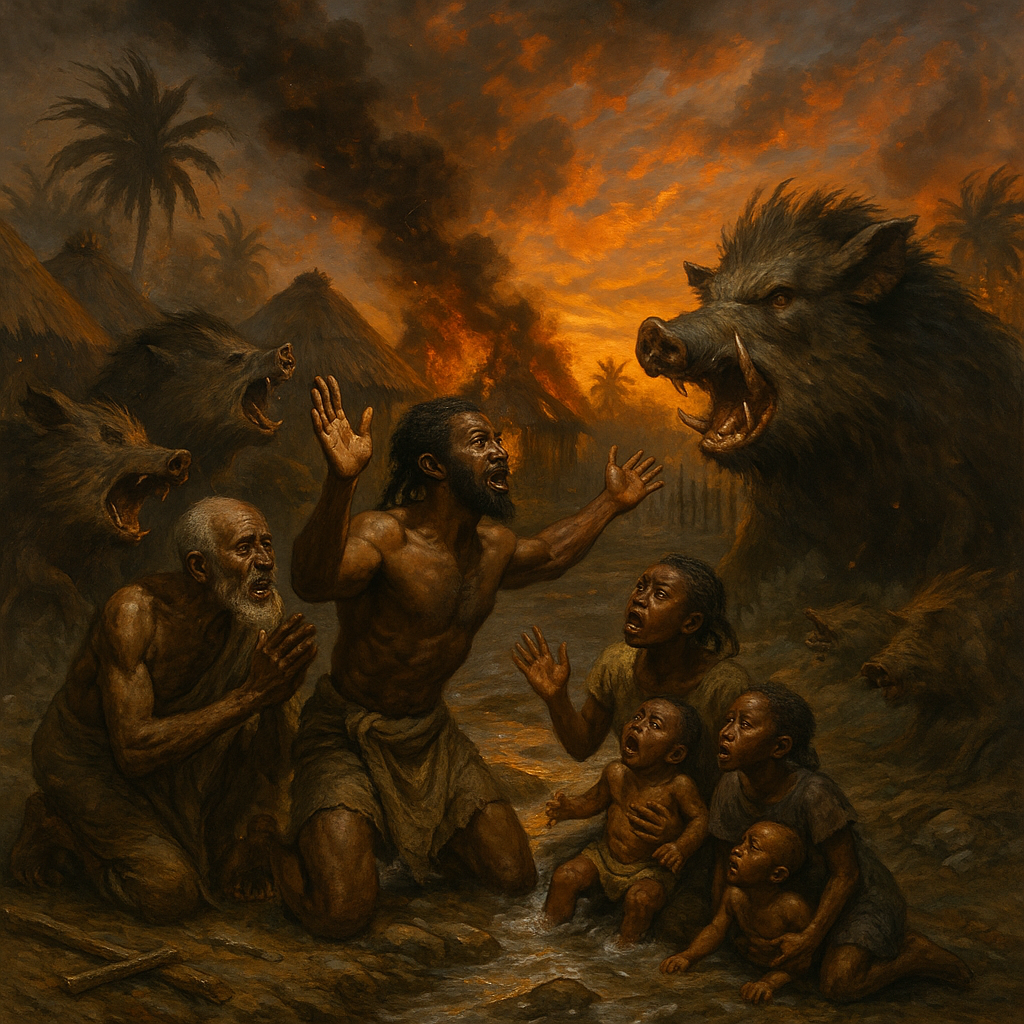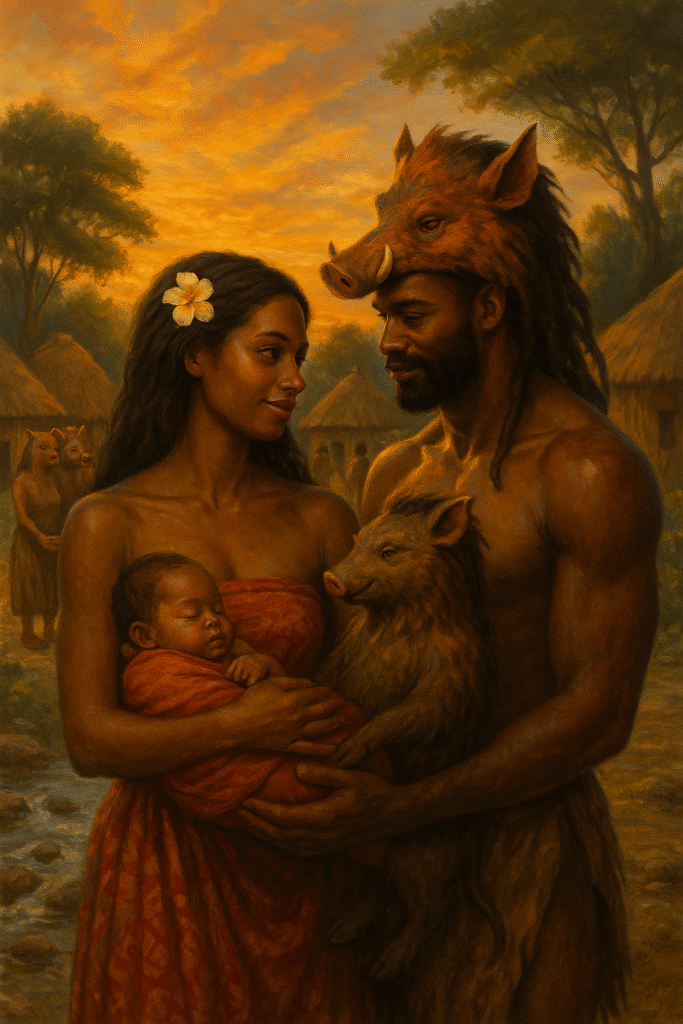IT IS SAID that once there was a female eagle and that in her wanderings she came upon a certain old woman who had a sore on her leg. And the eagle said, “Gracious me! That is an unusual kind of sore. With a sore like that, however hard you try, are you able to walk?”
The old woman said, “Oh, just a very little.”
The eagle said, “You people! Nowadays, if I were to do something good for you today, tomorrow you would do something bad to thank me.”
The old woman said, “Oh! I would not do that.”
The eagle said, “If you will not behave like that, I will help you.” After a pause the eagle commanded, “Shut your eyes, and then open them.”
And the old woman shut her eyes and opened them.
The eagle then said, “look at your sore.”
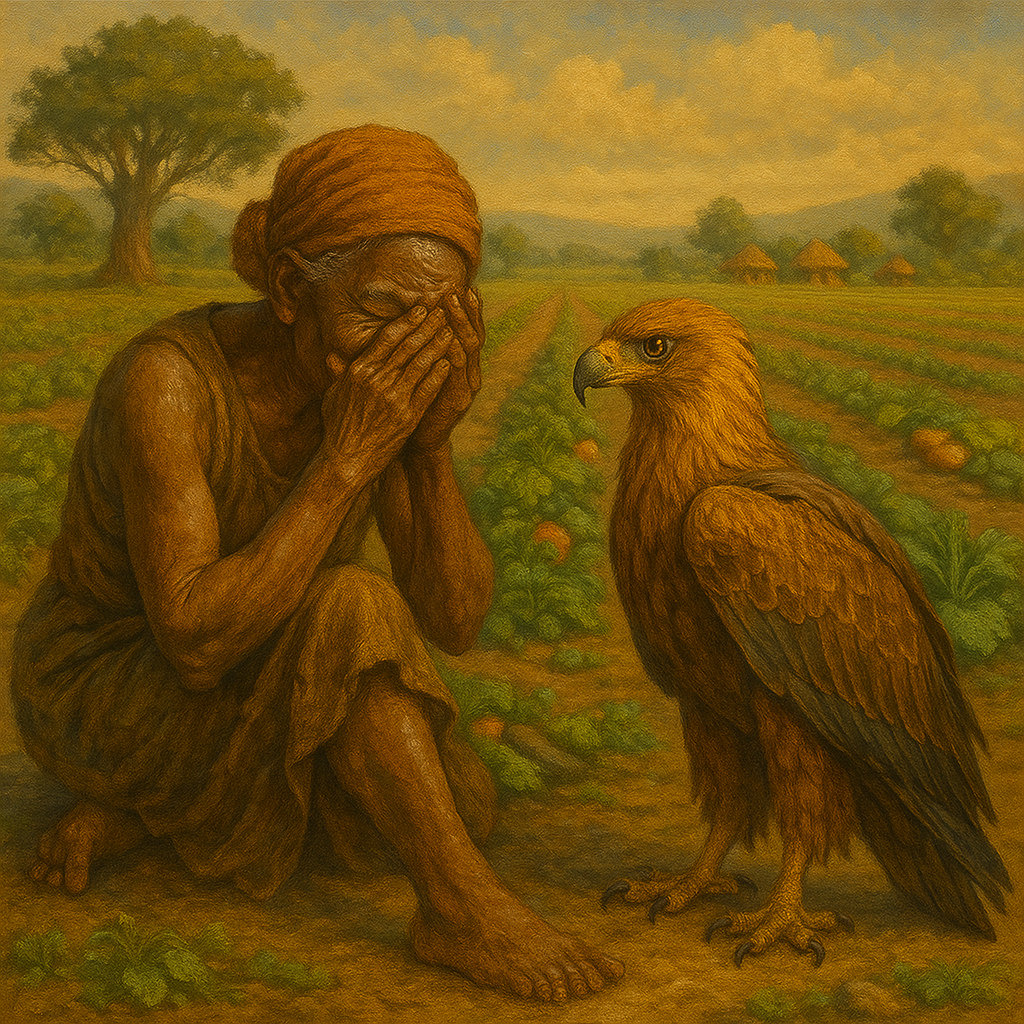
And the old woman stooped to look – not a trace of it remained. Then the eagle made her close her eyes again; she opened them, and she saw that all the forest had been cleared.
The eagle said, “Close your eyes again.”
The old woman closed them and then opened them, and she saw that houses were firmly built there. And the eagle made her close her eyes again. She opened them to see a town of large size. There it was – huge!
The eagle said, “Old woman, it’s yours.”
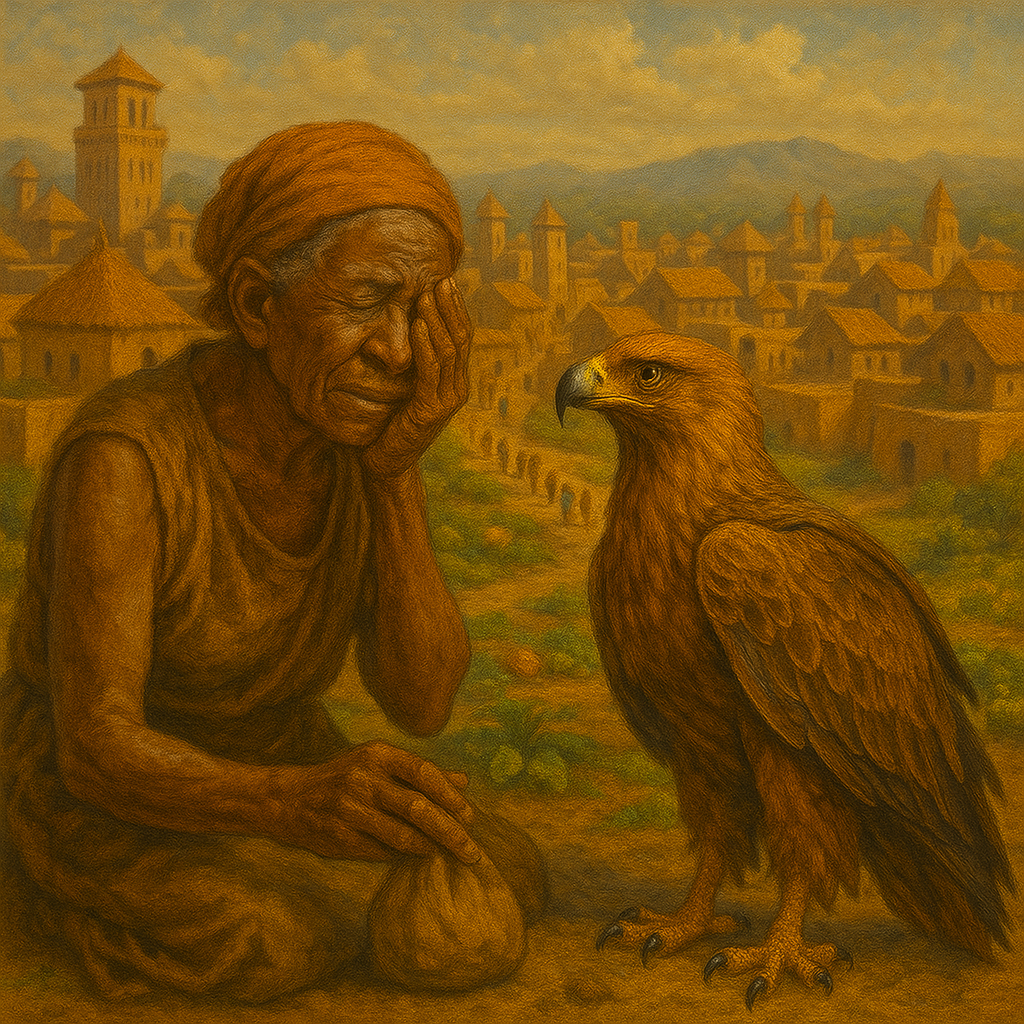
The old woman said, “Thanks, thanks! I give you thanks! What must I give to thank you?”
The eagle said, “I do not want even a trifling thing. As for me, all that I desire is that silk-cotton tree that stands there.”
The old woman said, “This thing you ask for – it is nothing – take it.”
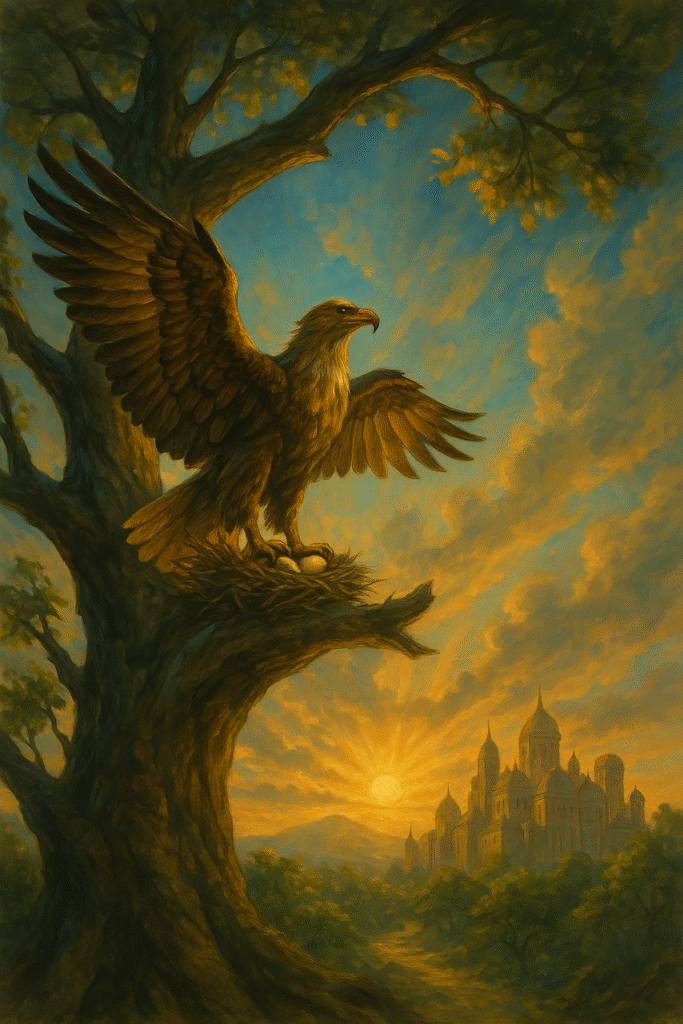
Then the eagle flew off, alighted on the tree, and wove a nest and laid two eggs which she deposited in it. And she hatched the two eggs, and went off to seek for something for her children to eat.
Then the old woman’s grandchild, who lived with her, began to whimper: “Ehe! Ehe!”
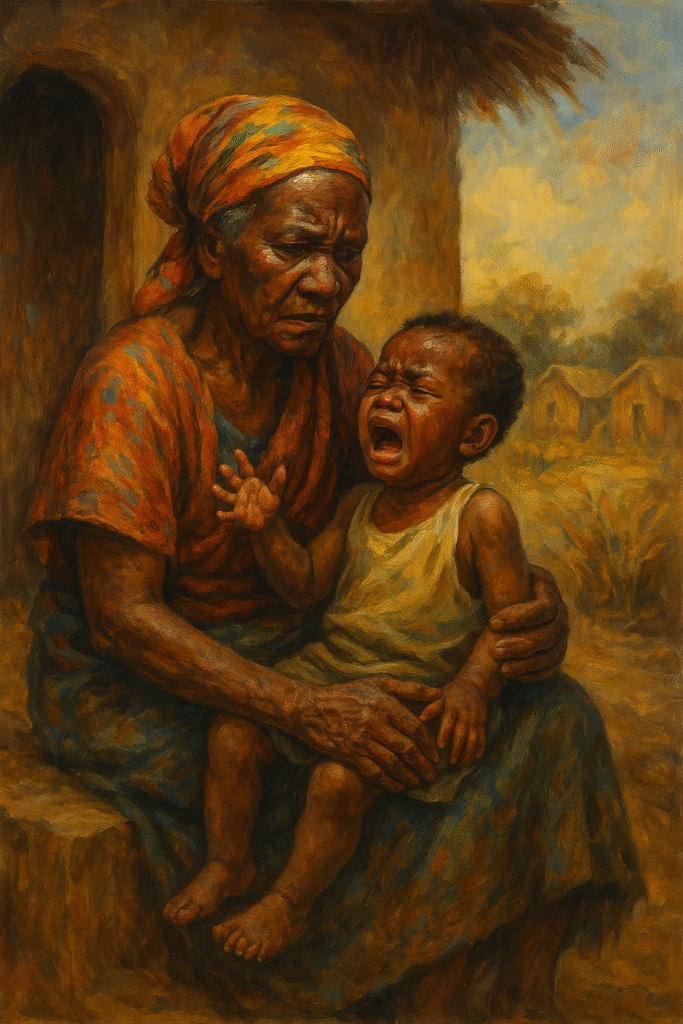
The old woman said, “What’s the matter?”
The child said, “Let me chew an eagle’s child.”
The old woman said, “Where am I to get an eagle’s child?”
The small grandchild commenced again – “whimper! whimper!”
The old woman said, “What’s the matter?”
The child said, “Let me chew an eagle’s child, for if I non’t have one to chew I shall die.”
The old woman said, “Ah! Must this my grandchild die for want of an eagle’s child to chew? Go, take axes, and strike the silk-cotton tree and bring me the eagle’s children.”
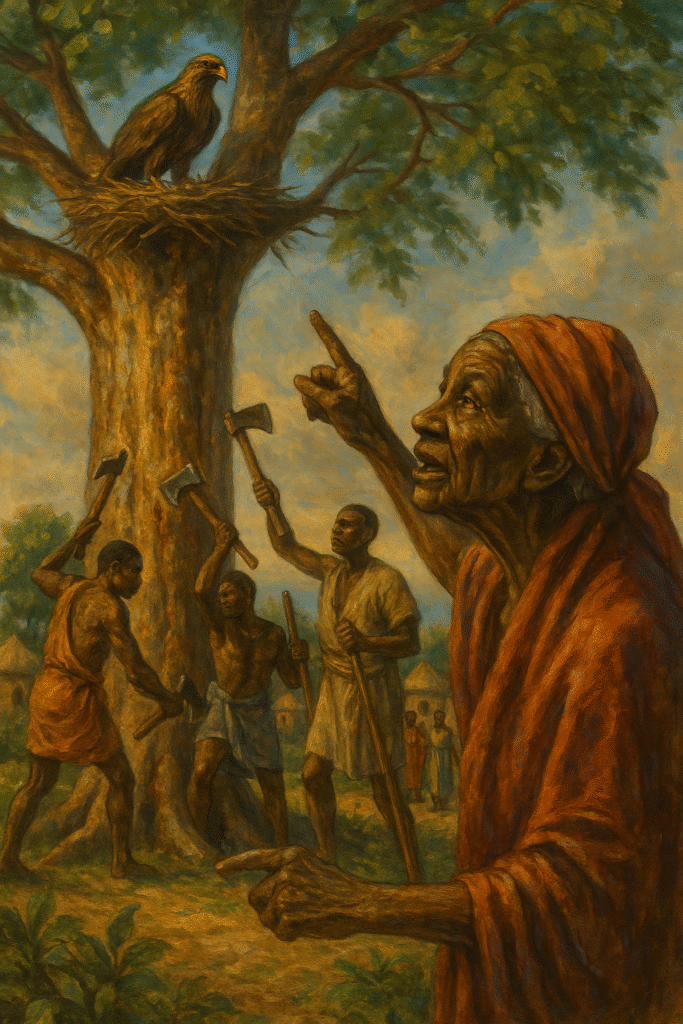
The village folk went there, the axes sounded pinpin! pinpin! pinpin! It was just when the tree was going down, that the elder of the eagle’s children jumped up and stood on the edge of the nest and raised a cry. It called the mother:
“Sango, the bird e!
Sango, the bird, the eagle’s child!
Snago, the bird e!
Sango, if she went to eat, come back!
Sango, the bird e!
Sango,o! o!”
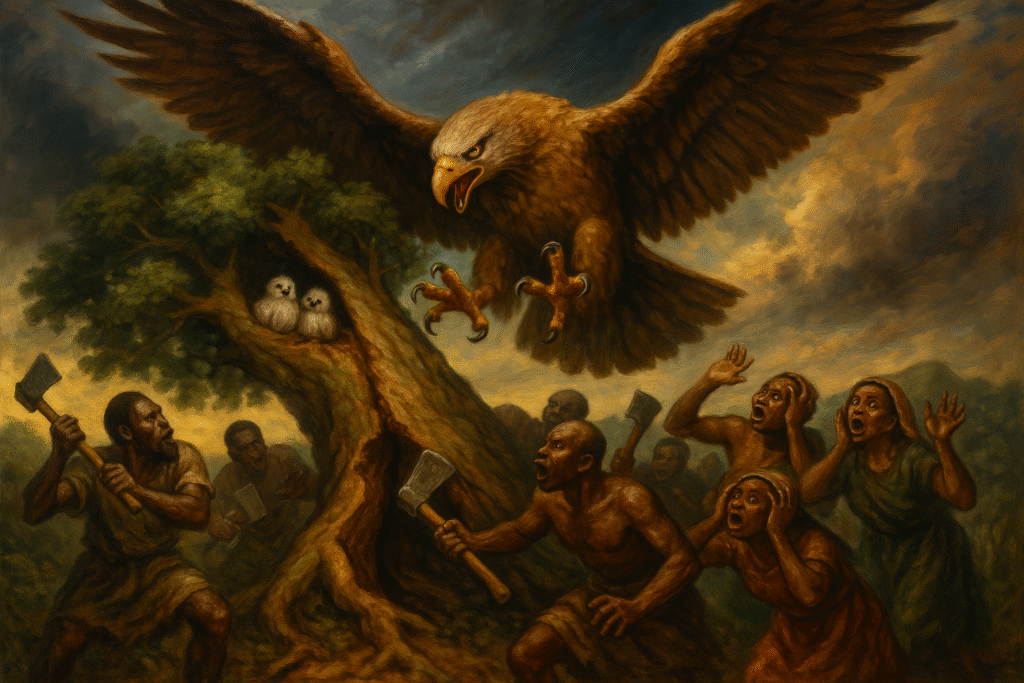
The mother heard that her child was crying; she rose up and the sound of her wings flapping was fa! She came, she said “Sanguri!” And the silk-cotton tree, which was nearly severed, came together again, and all the people who had been striking it were swallowed up. The eagle took the food which she had brought and gave it to her children. Then she bade them good-bye and said, “I am going. If the old woman comes to take you away, let her take you.”
And the old woman said, “Go and strike down the tree and bring the creatures for my grandchild to chew.”
And they went there a second time. Pinpin! pinpin! pinpin! It was just as the tree was to go to the ground that the eagle’s child came out and stood on the edge of the nest, and called its mother:
“Sango, the bird e!
Sango, the bird, the eagle’s child!
Sango, the bird e!
Sango, if she went to eat, come back!
Sango, the bird e!
Sango, o! o!”
It called its mother, and called, and called, and called – there was no answer – and now the tree spoke as it hit the ground. “Brim!” it said.
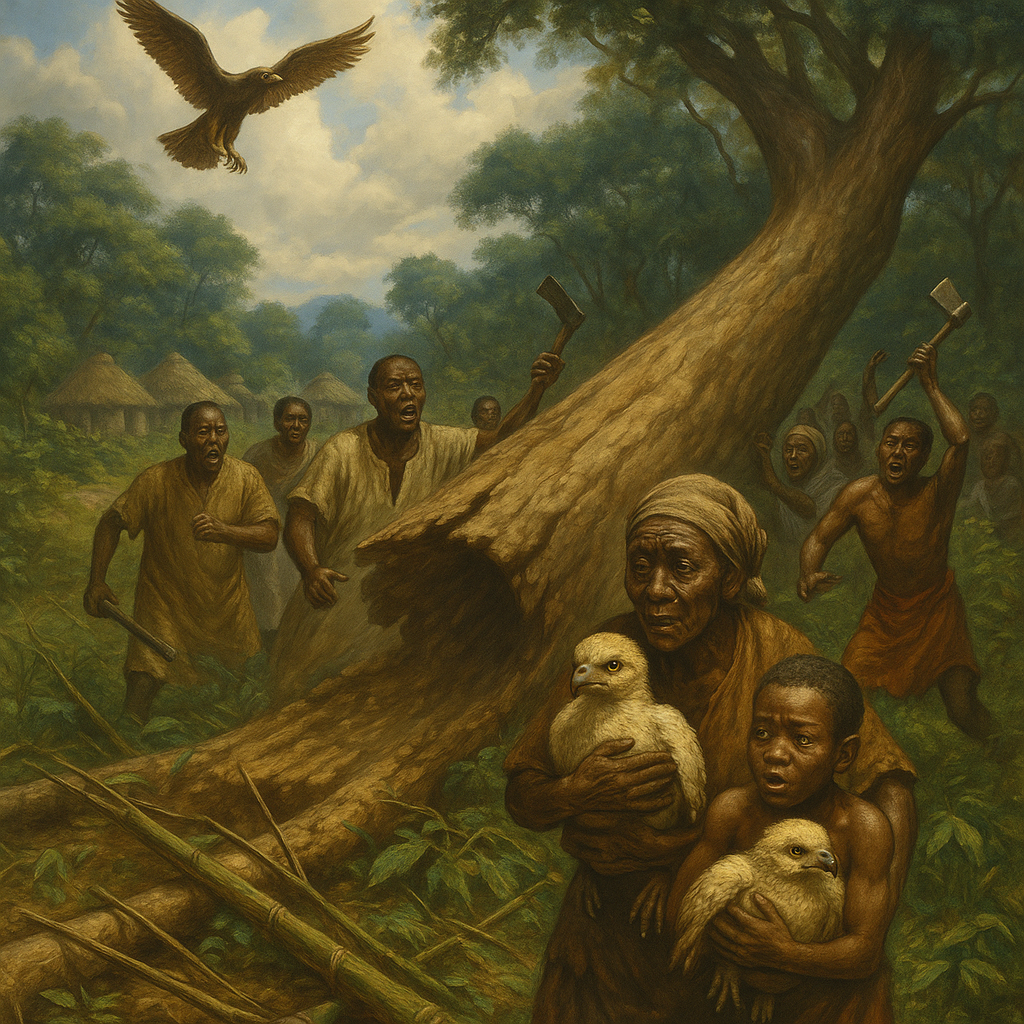
They took away the eagle’s children. They gave one to the old woman, but the one that remained flew away and alighted on a wawa-wawa tree. The first one the old woman roasted and gave to her grandchild, who added it to the roasted plantain she was eating
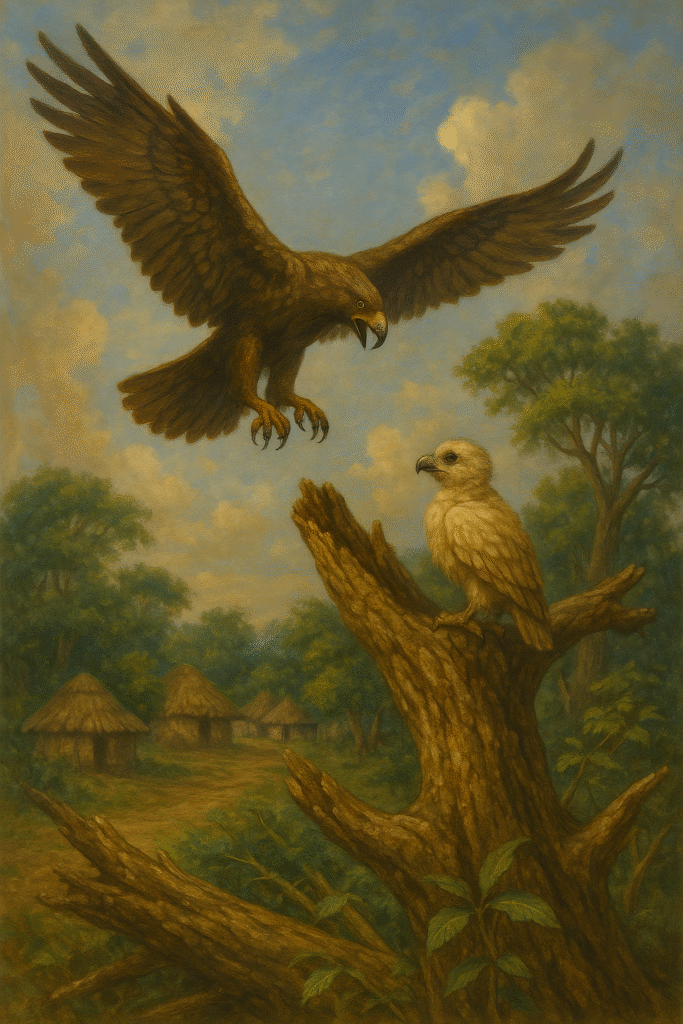
Not long afterward, the eagle came. When she reached the tree which they had felled, she saw one of her children sitting there. She asked it what had happened, and it told her the news. The eagle set off for the old woman’s village. When she arrived there, the old woman’s grandchild was eating one of her children. She said, Old woman, I congratulate you.” Then she came out from the old woman’s house and commenced her magic at the outskirts of the town. She said “Sanguri!” and every person disappeared; and again she said “Sanguri!” – the village once again became the forest. “Sanguri!” and the old woman’s sore came back. And the eagle said, “Old woman, you have seen.” That is why the elders say, “If some does good to you, thank him by doing good to him and do not return evil to thank him.”
[ ASHANTI ]
